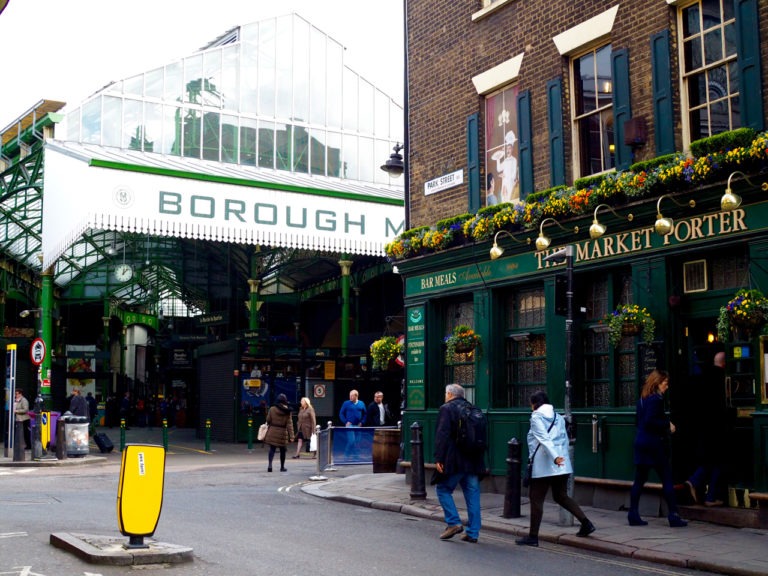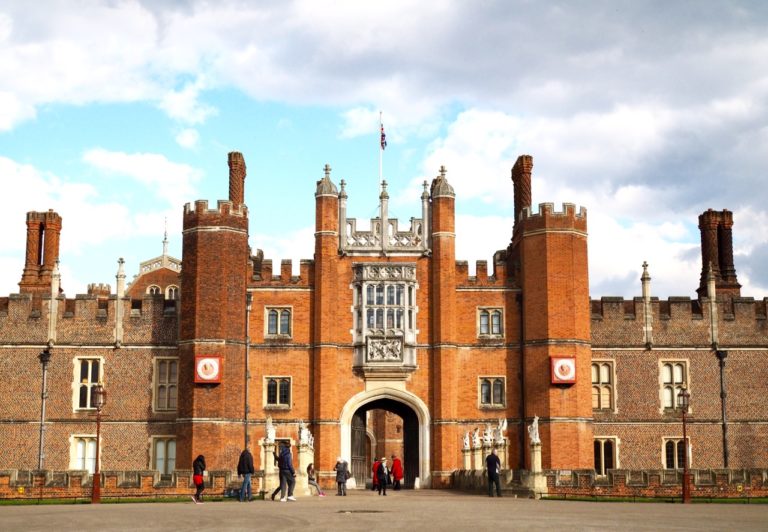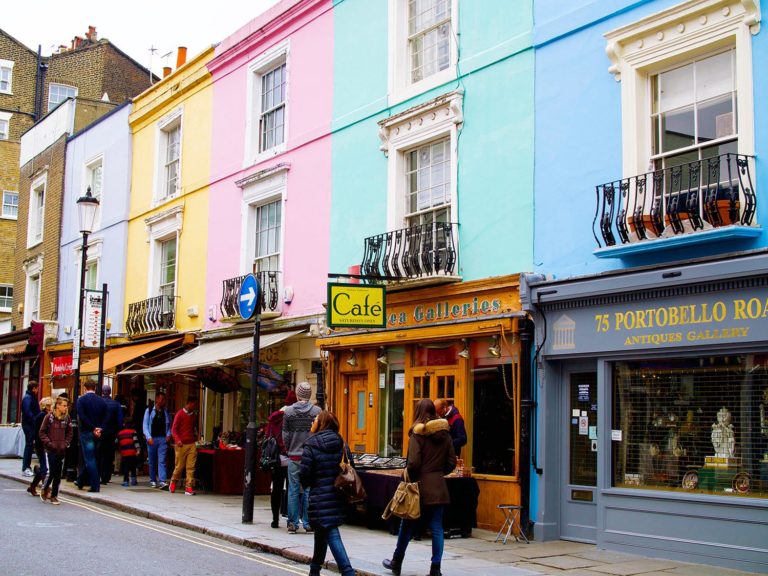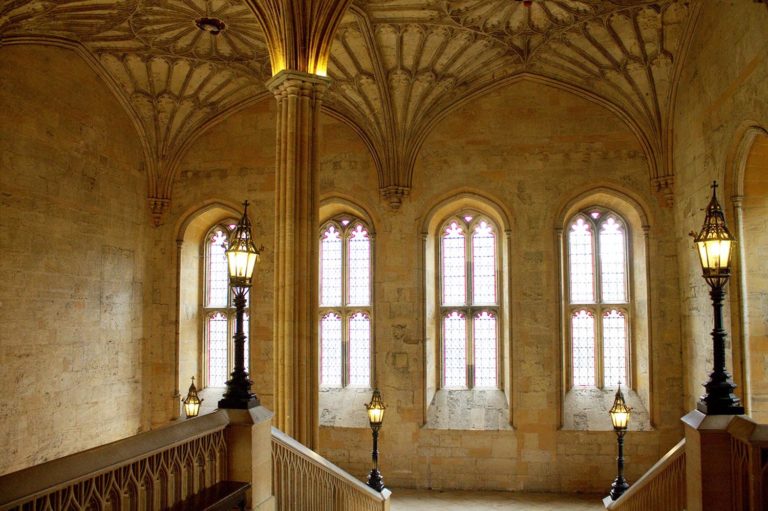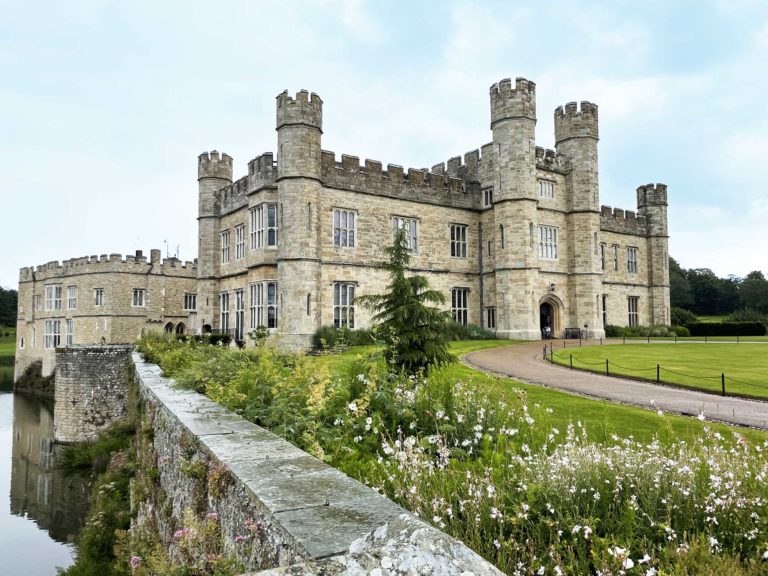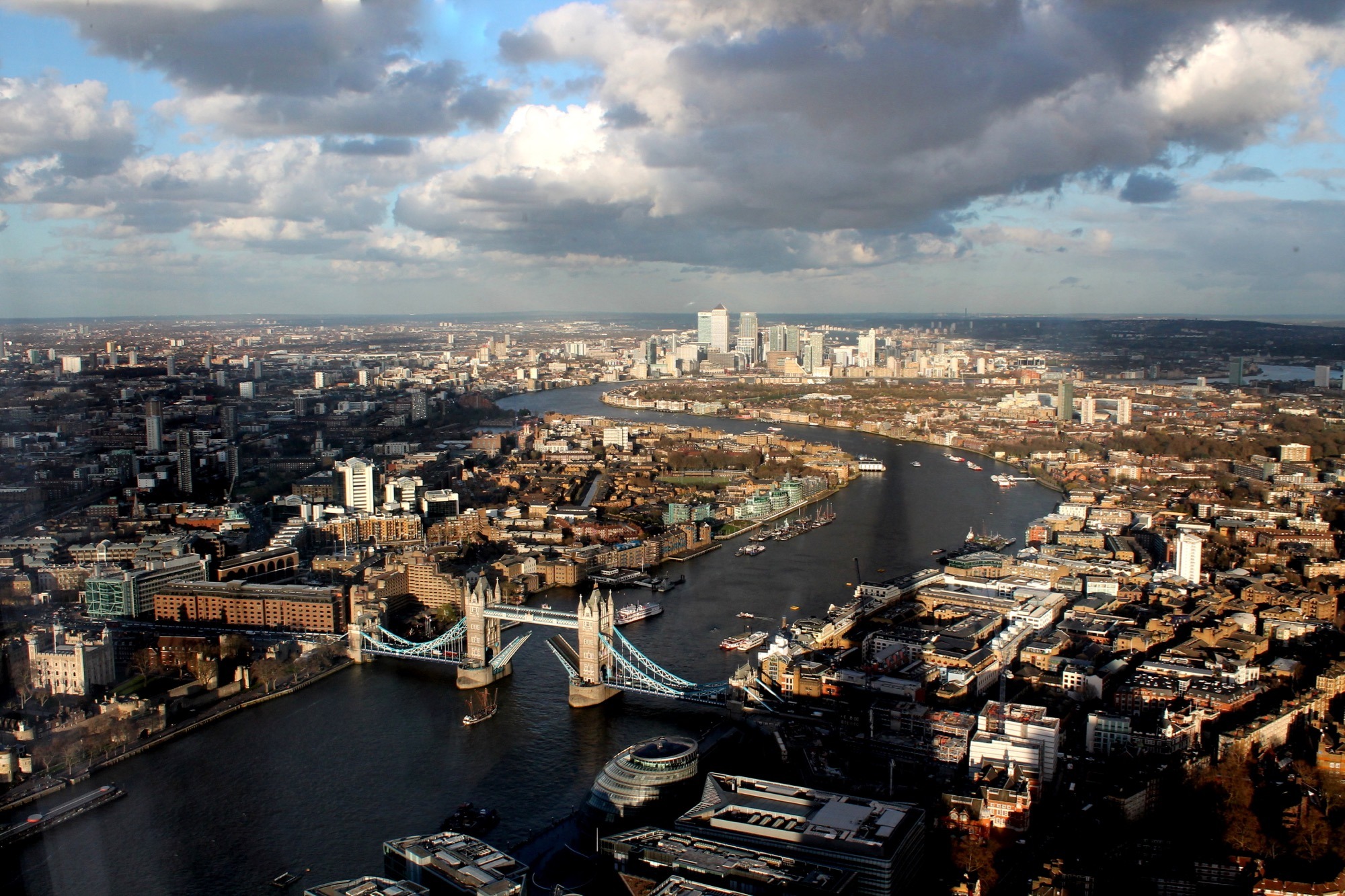Stratford-upon-Avon: the Llfe of Shakespeare in England
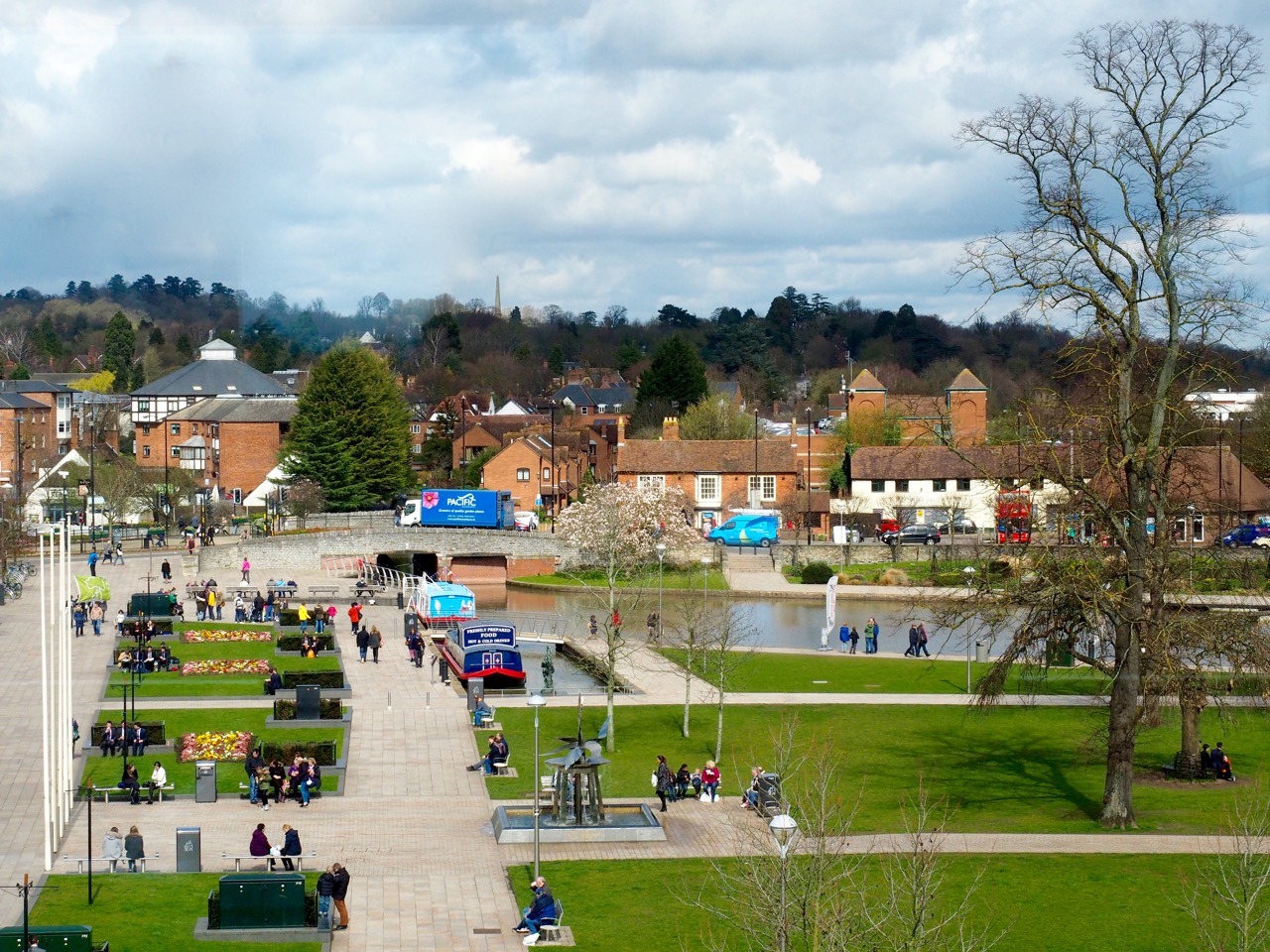
Visiting the birthplace of Shakespeare in England was something I had been wanting to do for as long as I kept a bucket list.
“Be not afraid of greatness. Some are born great, some achieve greatness, and others have greatness thrust upon them.” – Twelfth Night
As part of the celebrations surrounding the 400th anniversary of the Bard’s death, I was finally able to visit the mythical town of Stratford-upon-Avon and set foot in the very house where he was born and grew up to be the illustrious playwright we all know and unconsciously quote on a daily basis.
It just so happened that, in addition to being vastly historically significant, Stratford-upon-Avon is also one of the loveliest places I’ve seen in Britain. Think plentiful timber houses, tranquil riverside, royal theatre, modern British eateries and generally pleasant atmosphere that is only found in postcard-perfect English towns.
And, as you would expect, Shakespeare is Stratford’s pride and joy and his presence is somewhat ubiquitous in these parts, even 400 odd years after his passing, as his most notable quotes are scattered across town almost like a scavenger hunt in waiting — with the shining star being the home where he was born.
“I would challenge you to a battle of wits, but I see you are unarmed!” – William Shakespeare himself
Shakespeare in England: Beautiful Stratford-upon-Avon
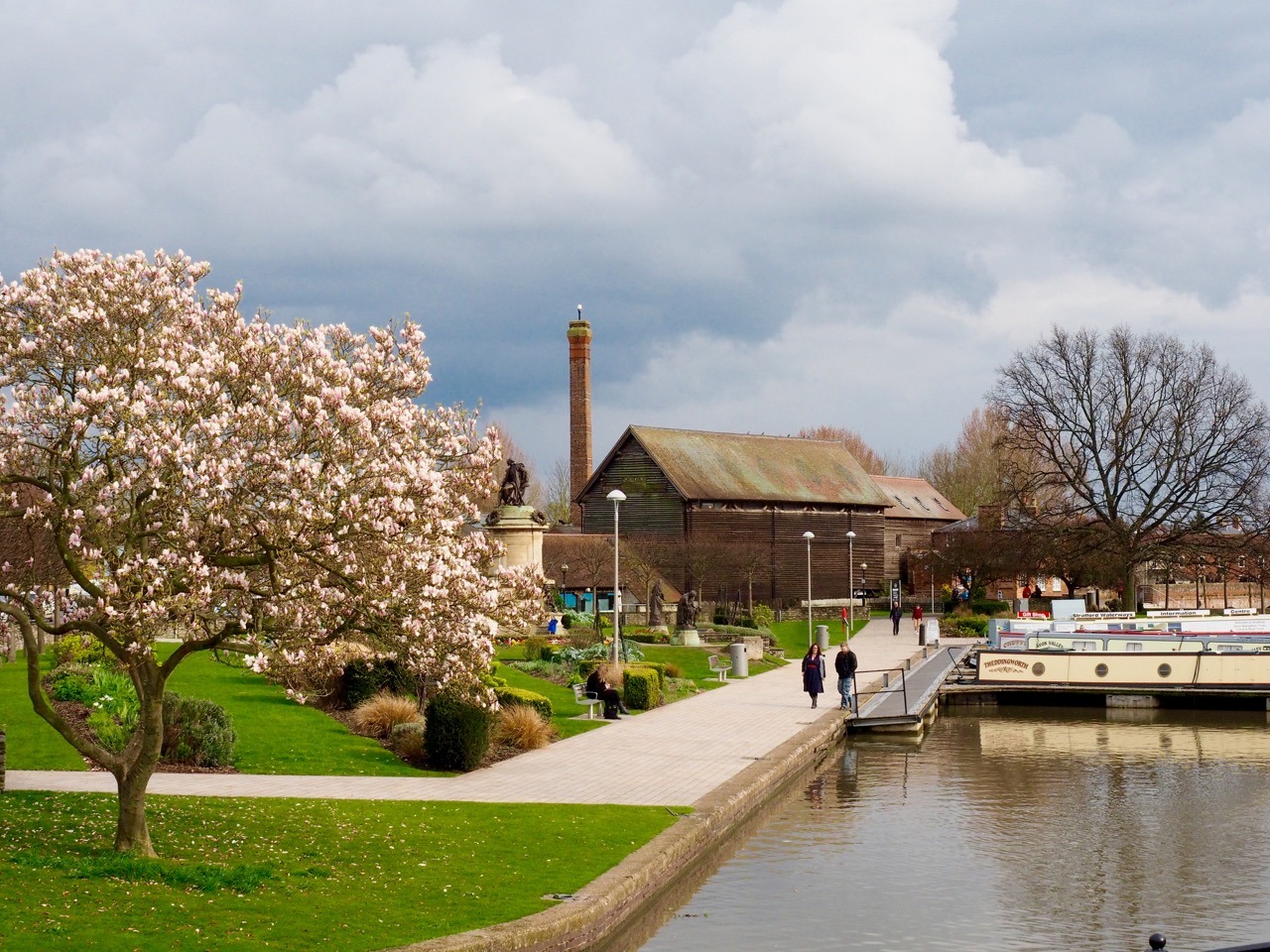 The beautiful Bancroft Gardens by River Avon
The beautiful Bancroft Gardens by River Avon
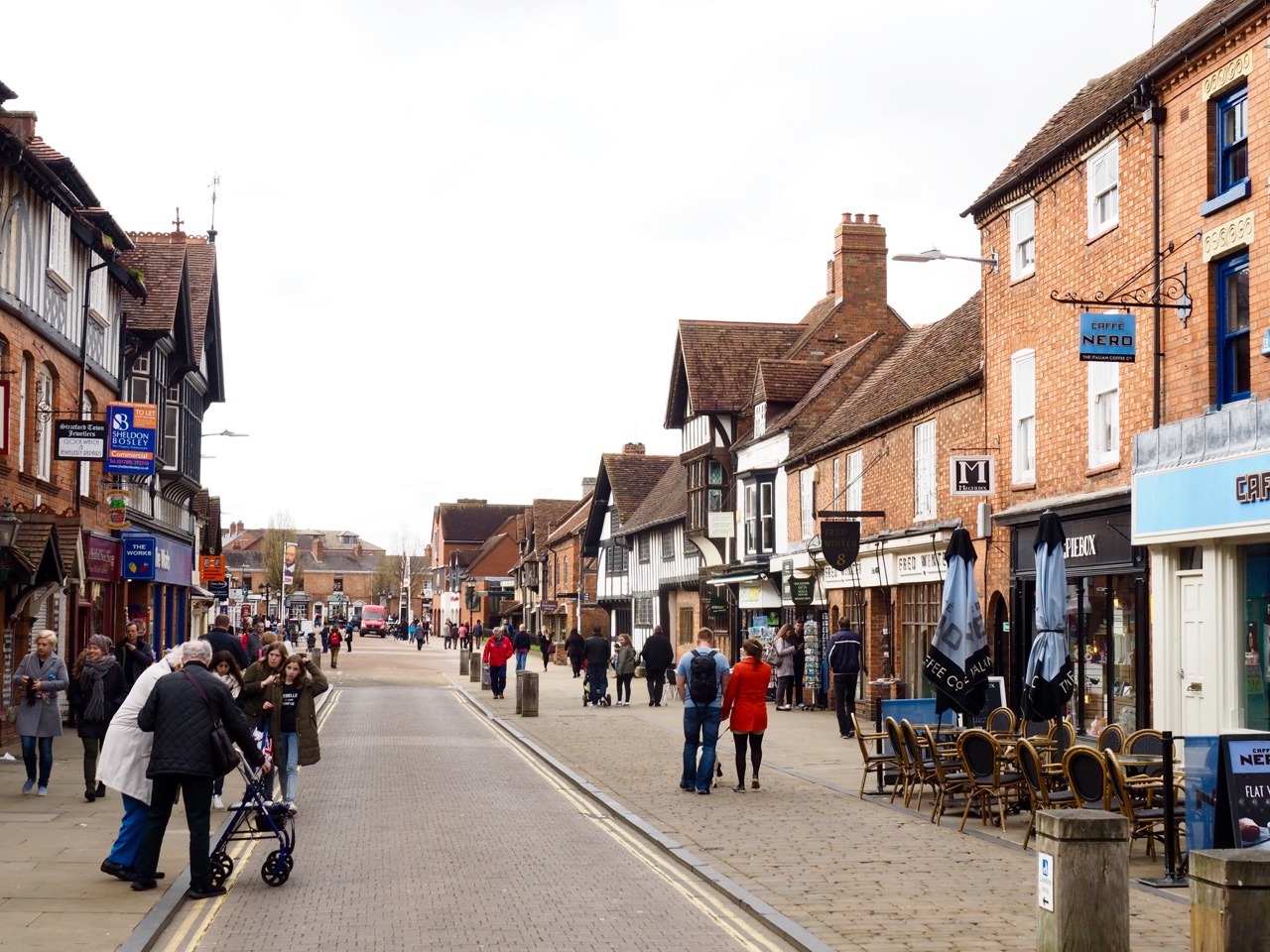 Henley Street, Stratford’s most photogenic street and where Shakespeare was born
Henley Street, Stratford’s most photogenic street and where Shakespeare was born
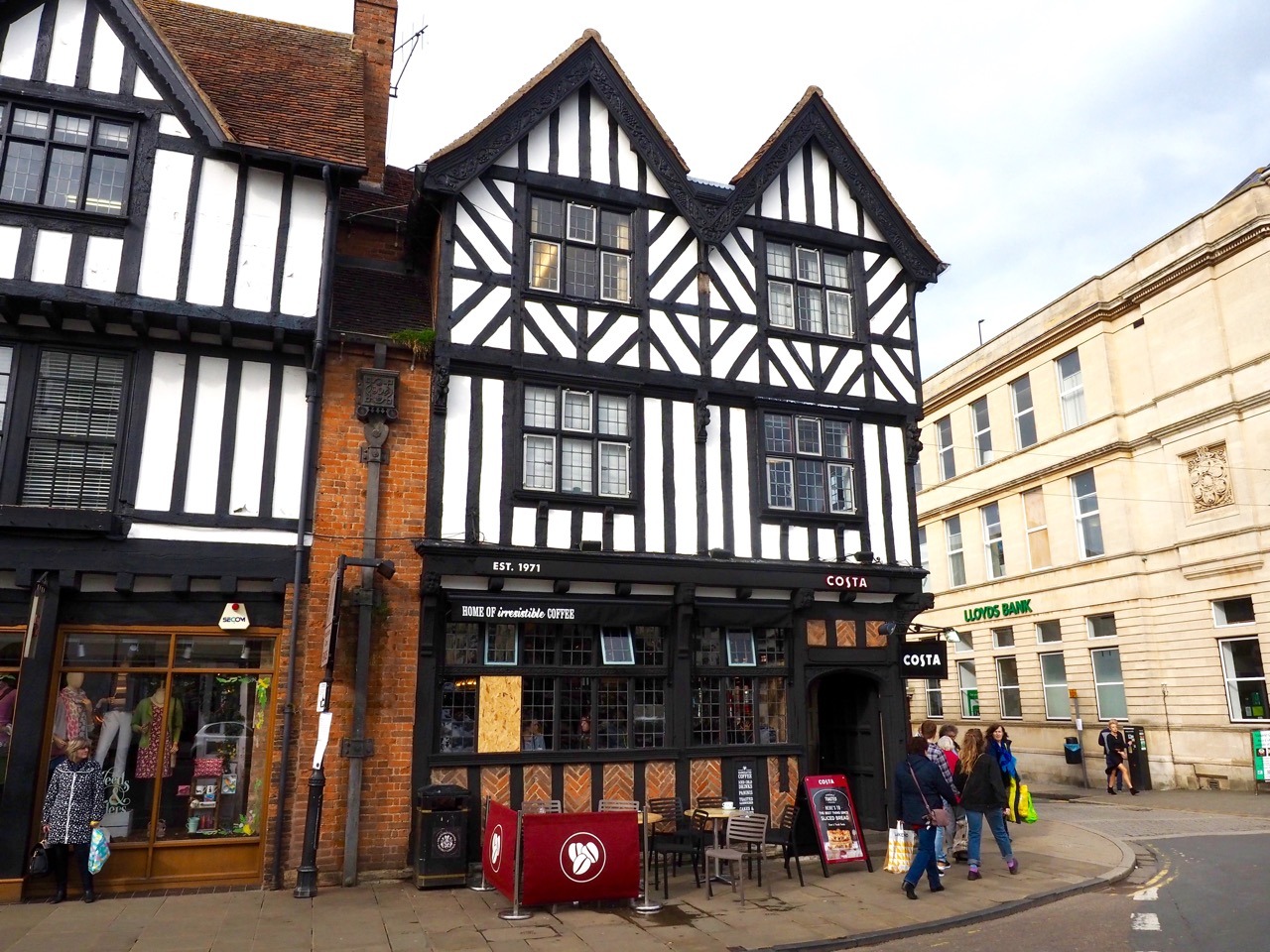 Possibly the best-looking Costa in the country.
Possibly the best-looking Costa in the country.
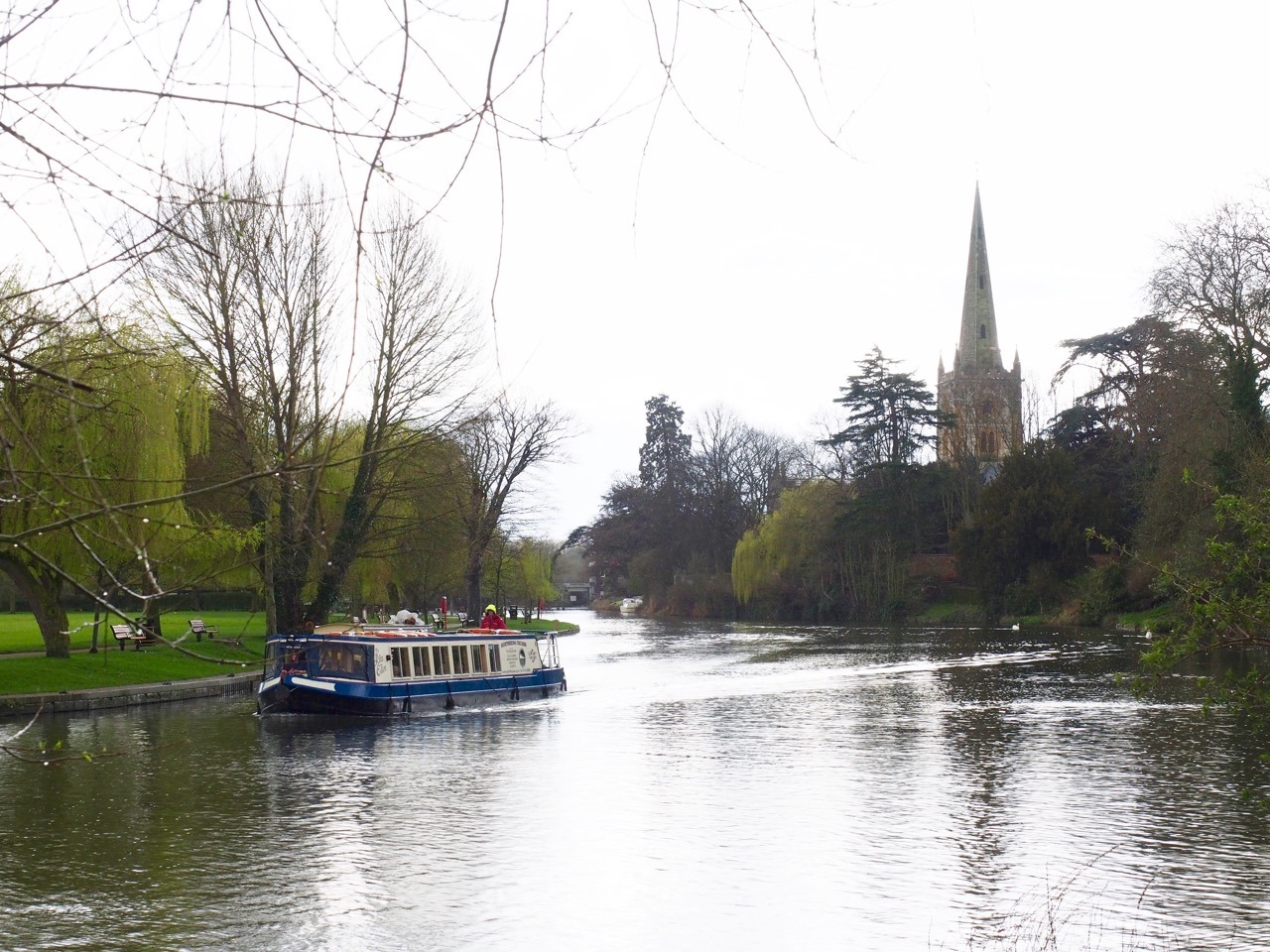 Walking along River Avon
Walking along River Avon
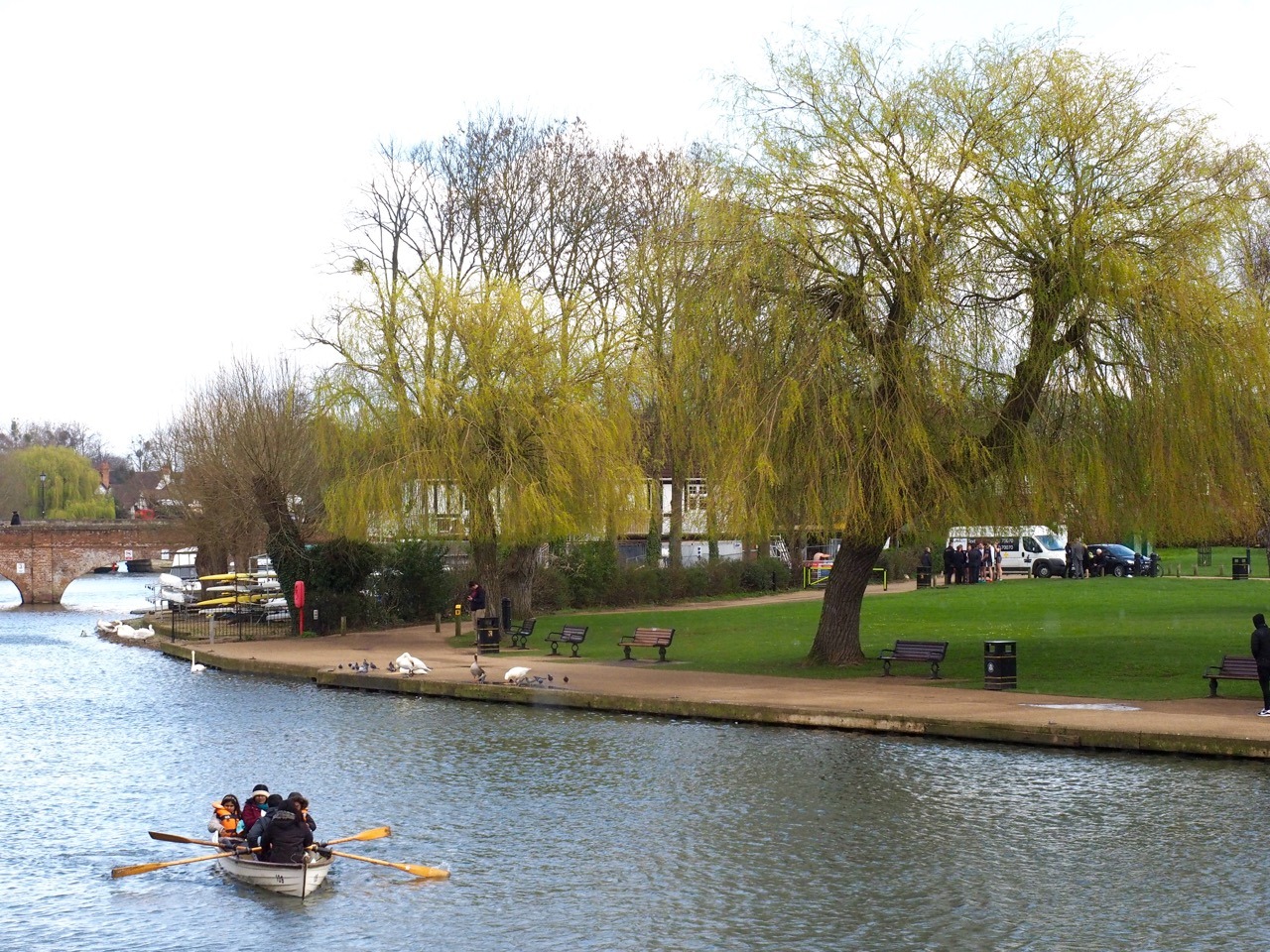
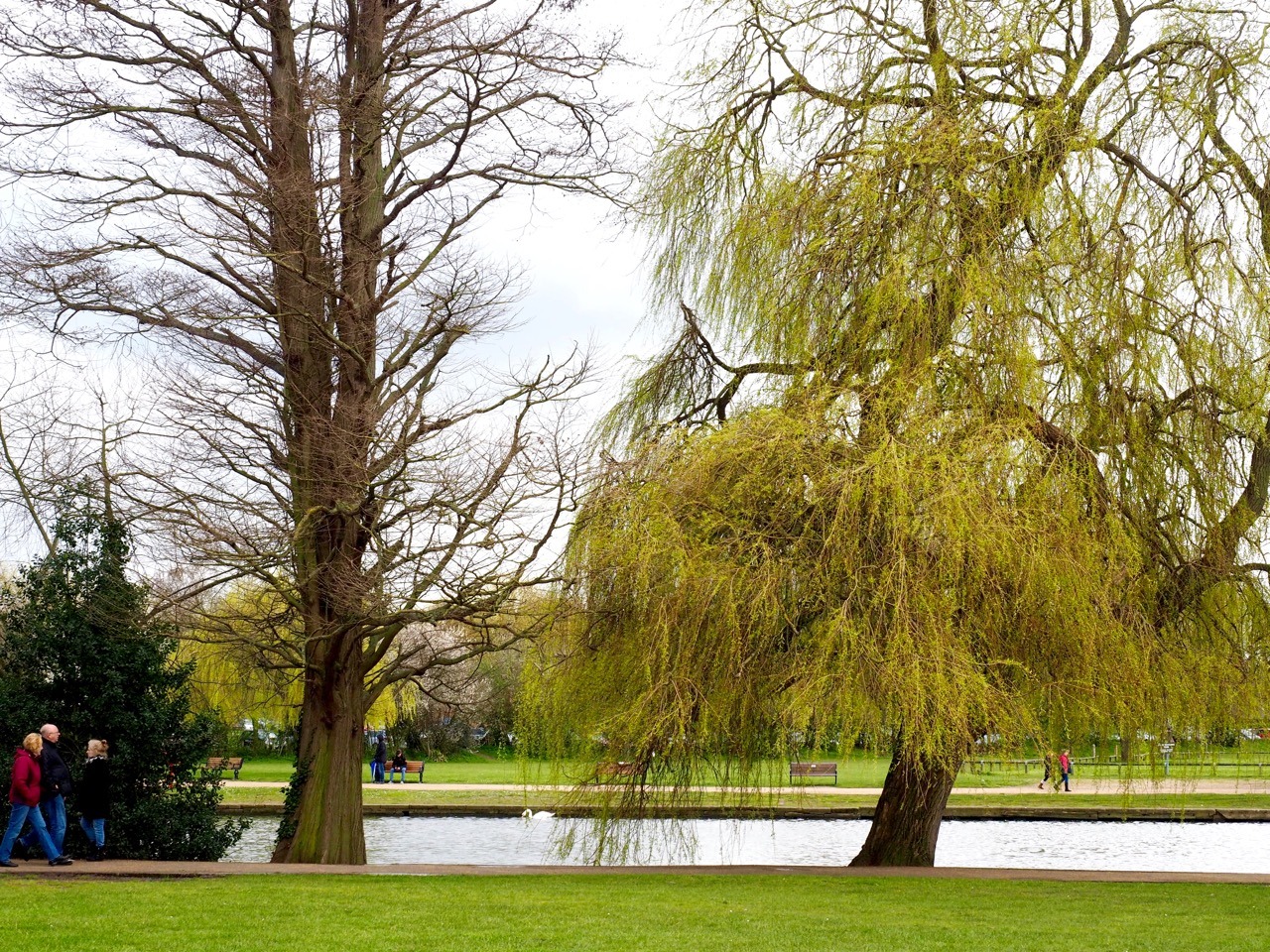
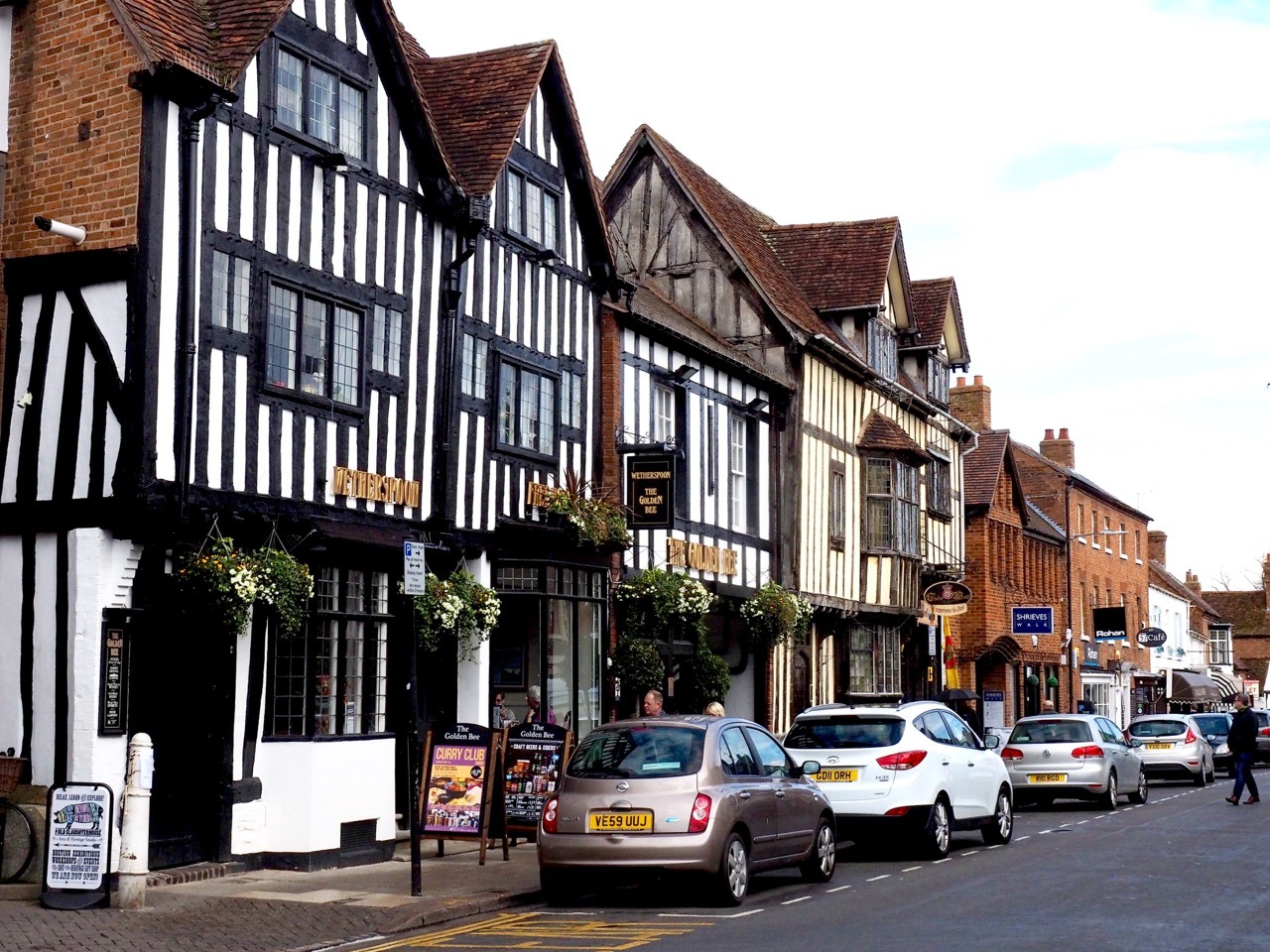 The Golden Bee pub on Sheep Street
The Golden Bee pub on Sheep Street
[left]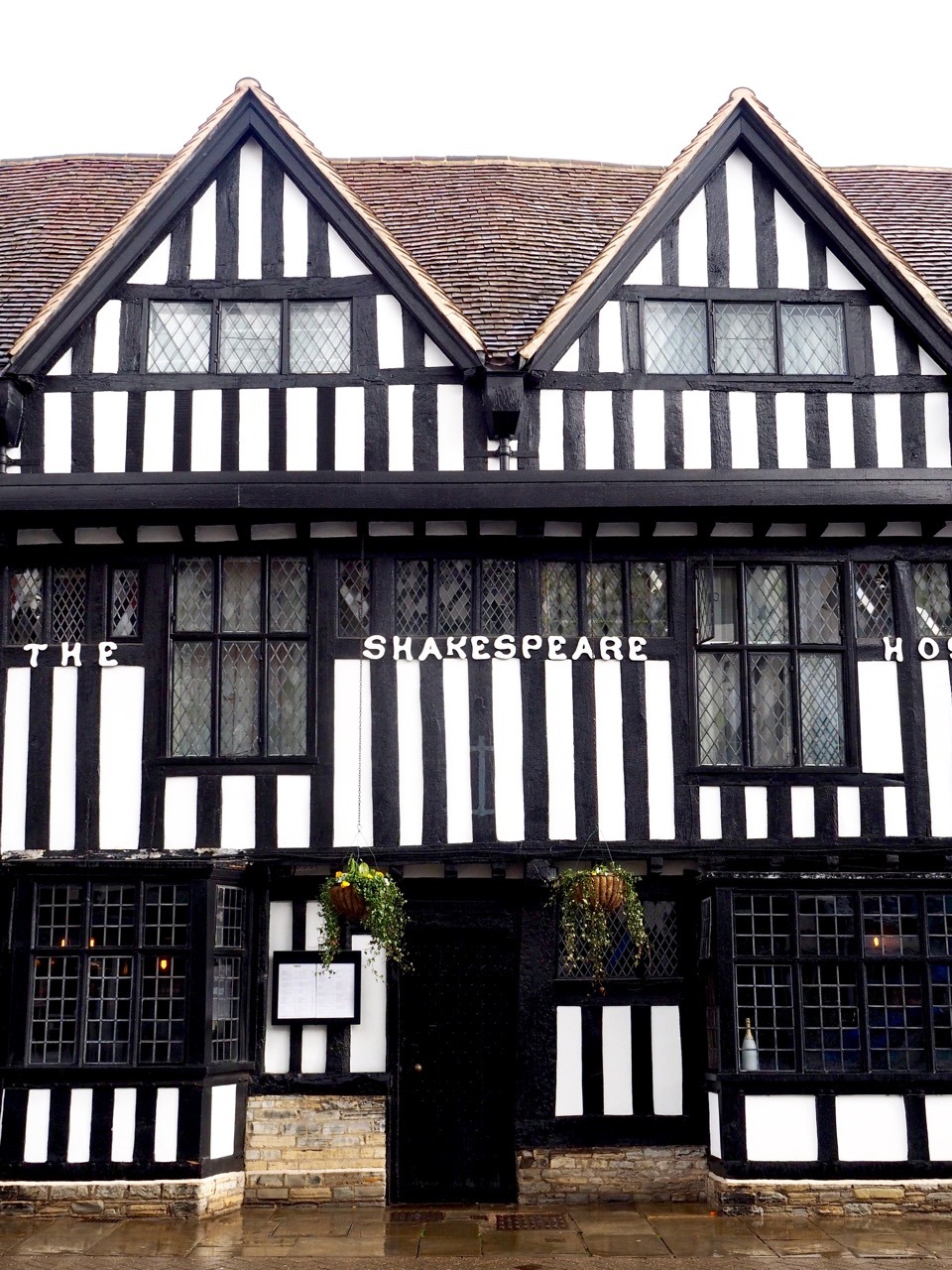 [/left][right]
[/left][right]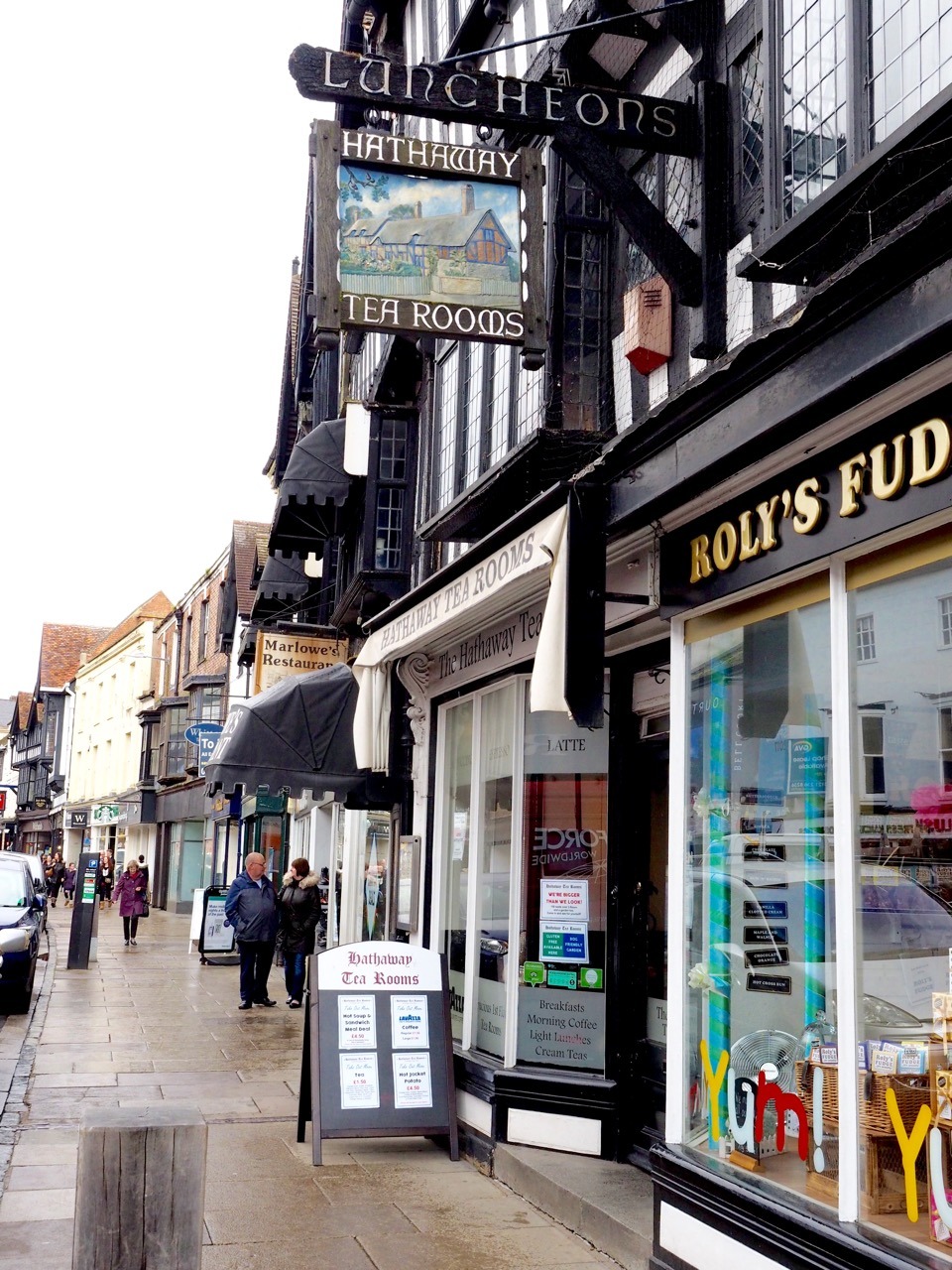 [/right]
[/right]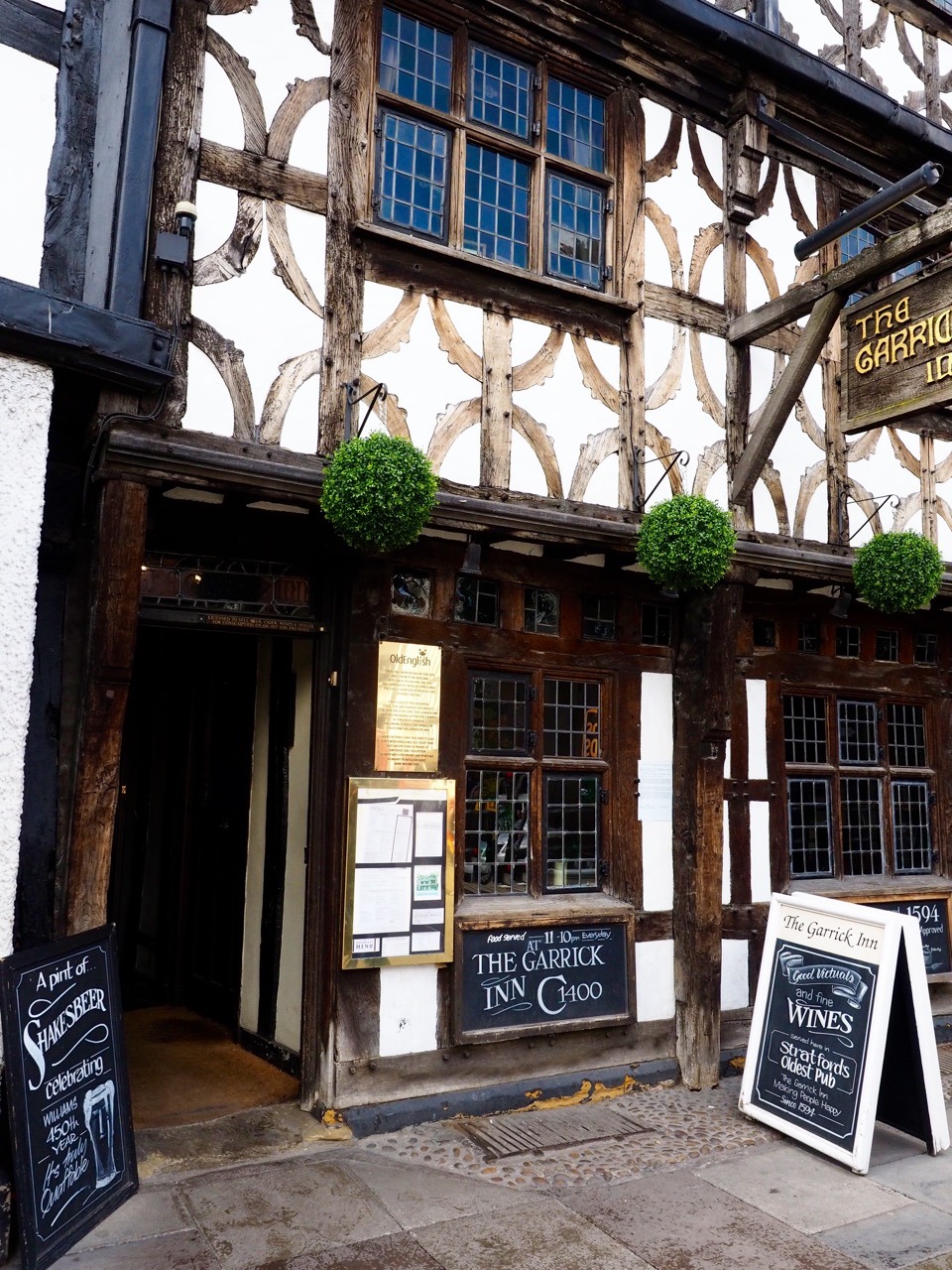 The Garrick Inn on Stratford’s High Street
The Garrick Inn on Stratford’s High Street
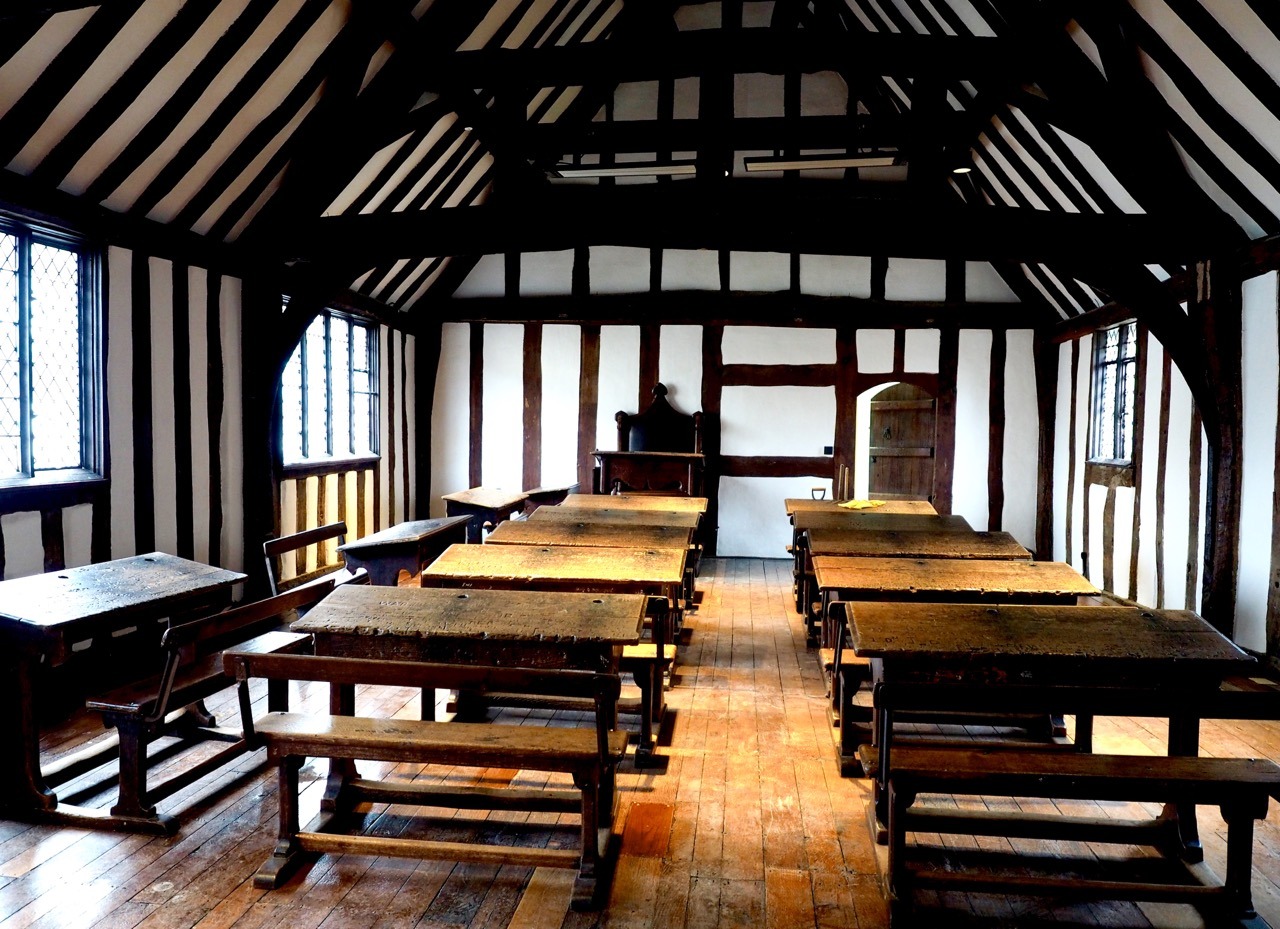 The classroom where Shakespeare was first introduced to theatre at the 15th-century Guildhall
The classroom where Shakespeare was first introduced to theatre at the 15th-century Guildhall
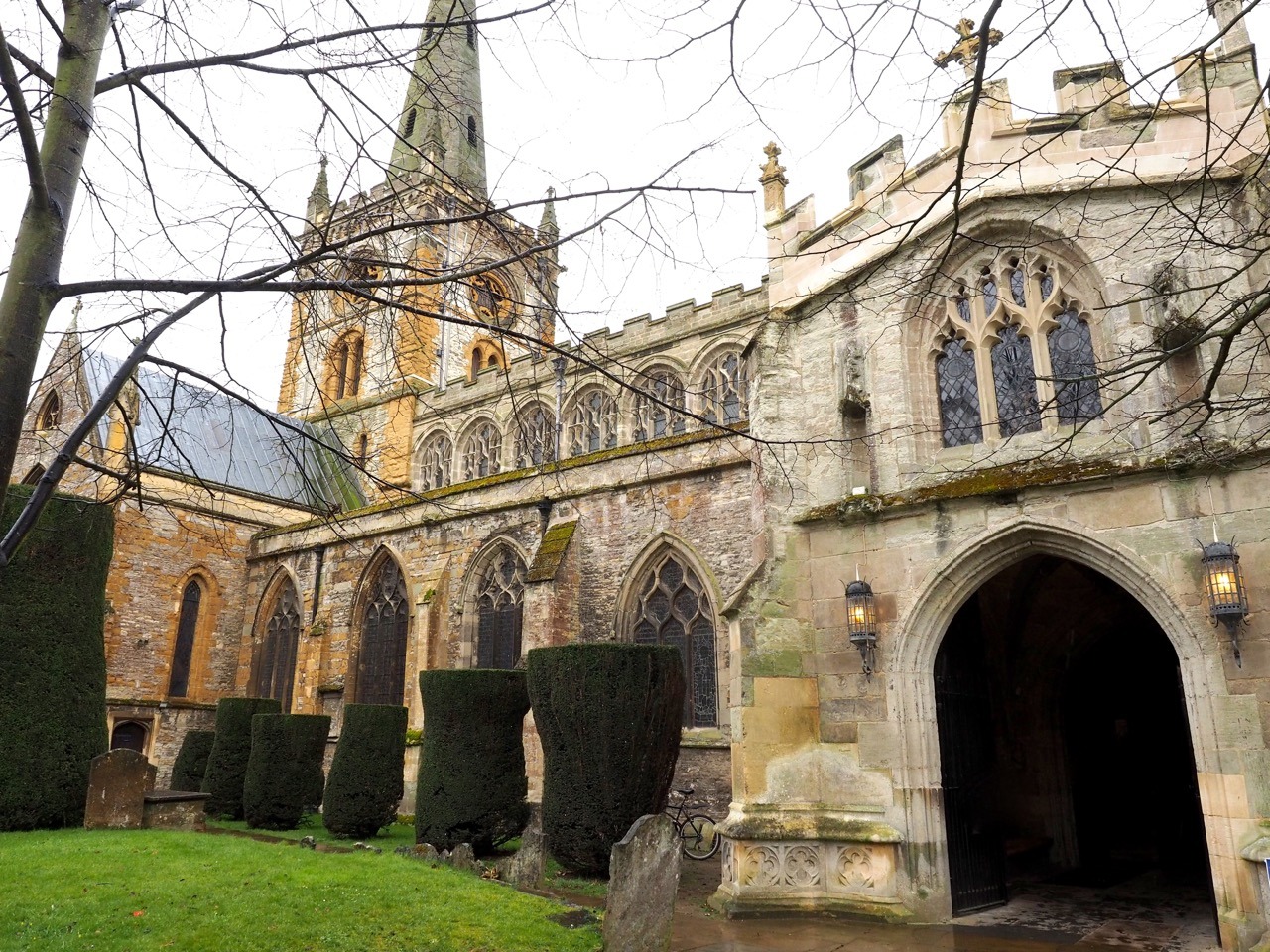 The church where Shakespeare is buried
The church where Shakespeare is buried
[left]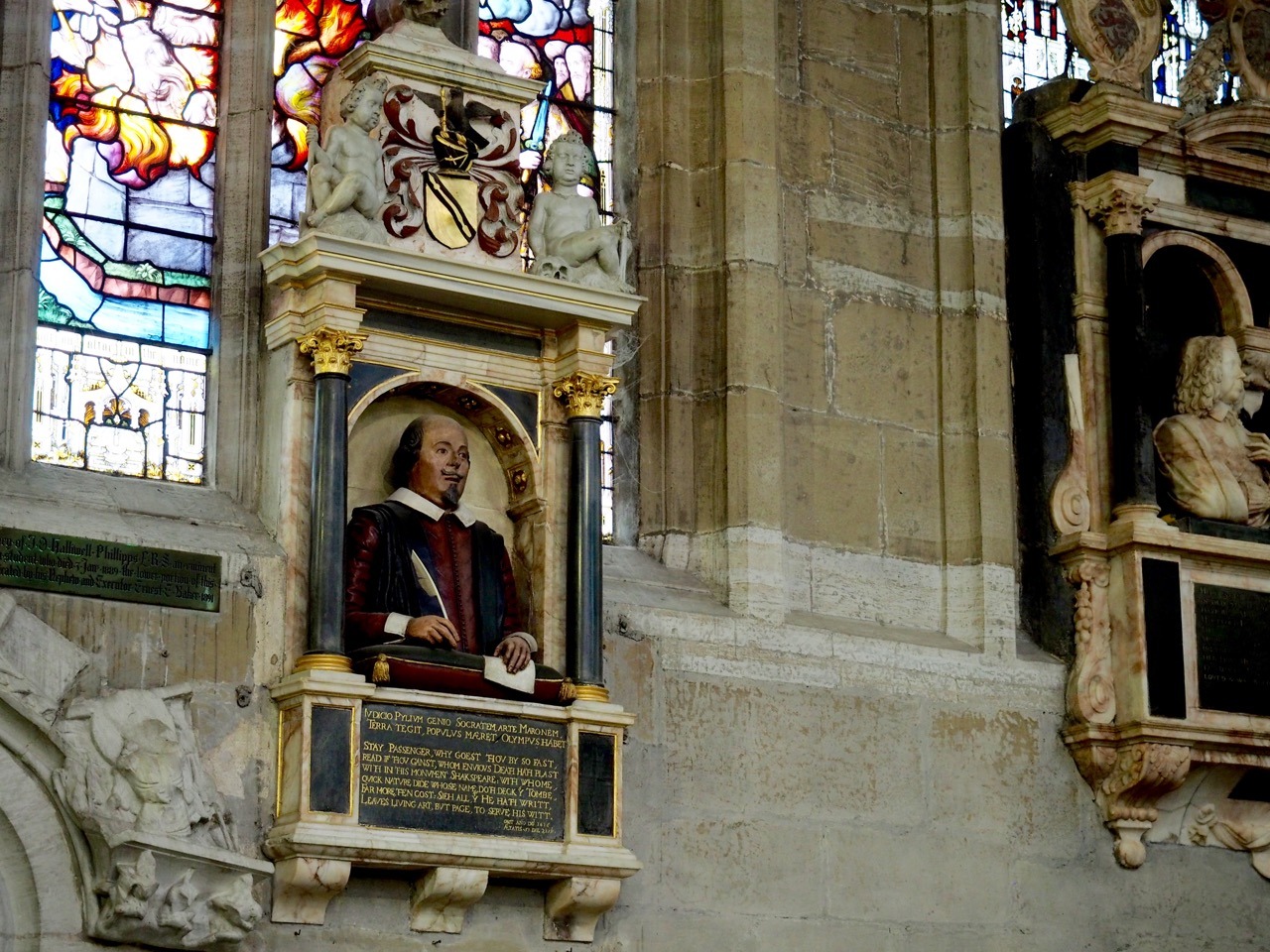 [/left][right]
[/left][right]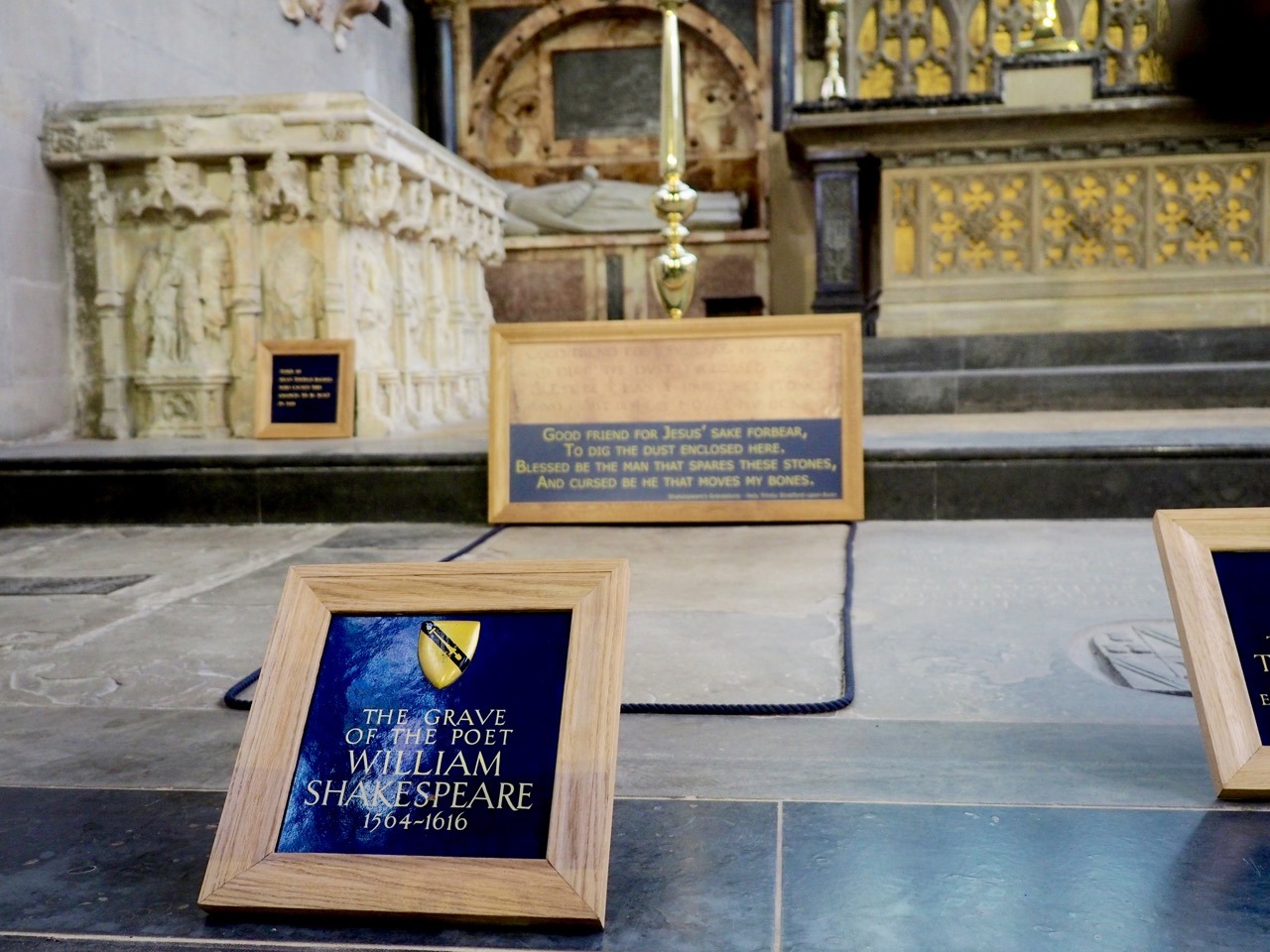 [/right]
[/right]
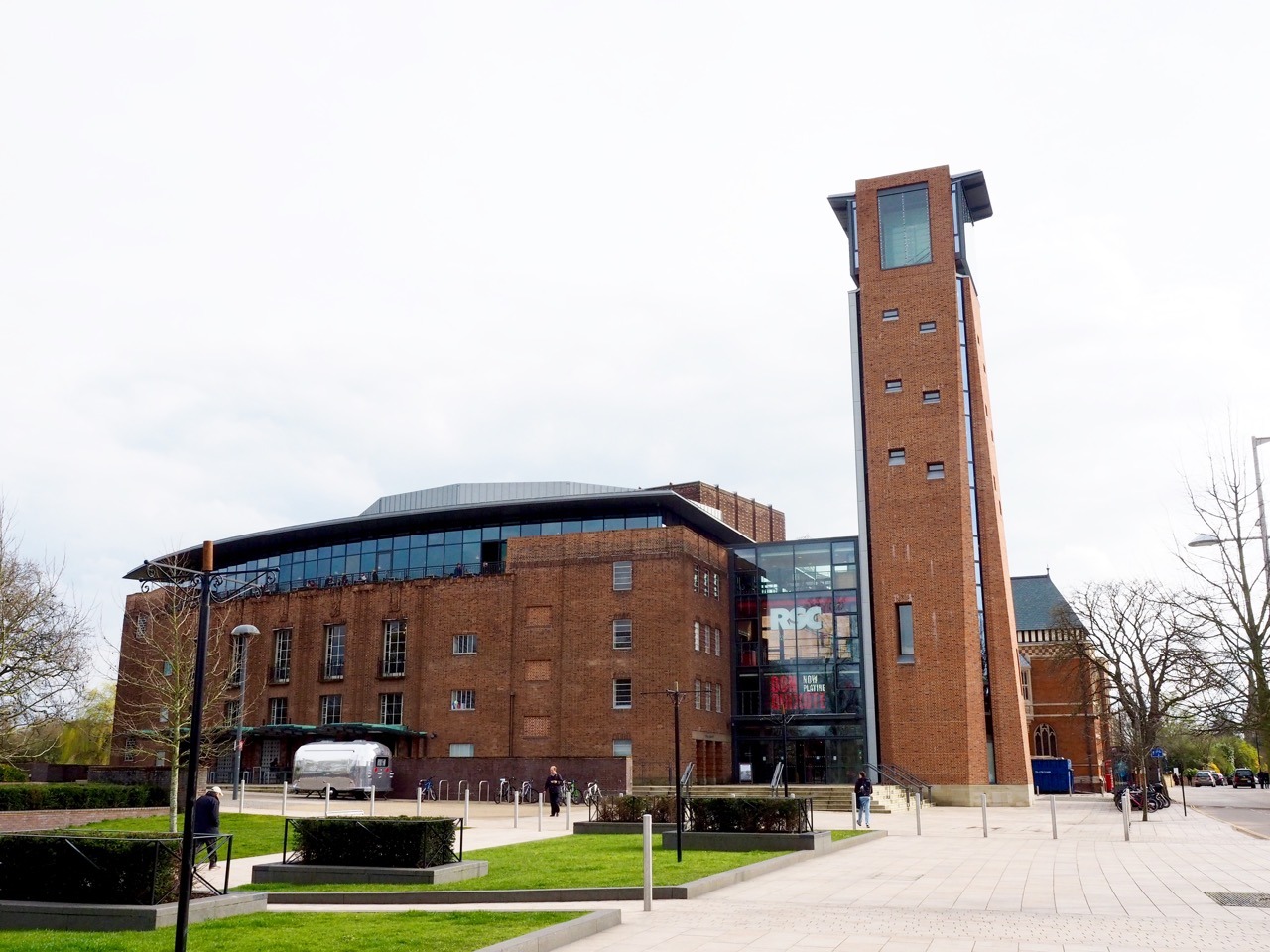 The Royal Shakespeare Company theatre!
The Royal Shakespeare Company theatre!
“Love looks not with the eyes, but with the mind; and therefore is winged Cupid painted blind.” – A Midsummer Night’s Dream
Incorporated in 1875, the RSC has always been dedicated to the works of Shakespeare’s first and foremost but has recently ventured out and highlighted other playwrights as well. They have produced almost every single one of the Bard’s plays with great success; if you are eager to see a Shakespeare play, this theatre is just as celebrated and meaningful as the more iconic riverside Globe in London.
The RSC also organised a new theatre tour named Page to Stage, which takes visitors on a journey from the first day of rehearsals to the first performance and includes a jaw-dropping peek in the vast Costume Hire room, where over 30,000 costumes (including those used in many noteworthy Shakespeare plays) are stored.
Shakespeare in England: The Shakespeare Birthplace
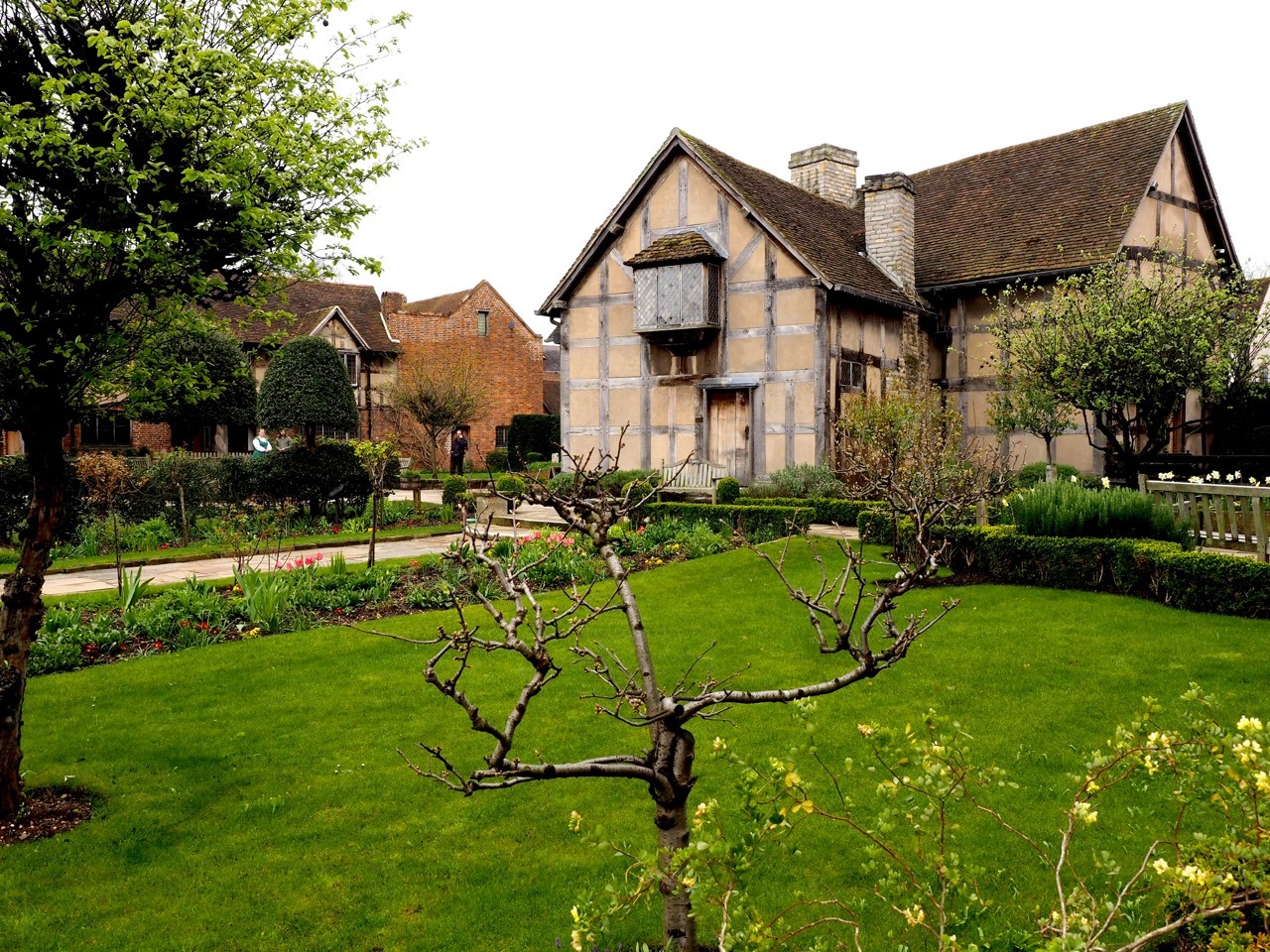
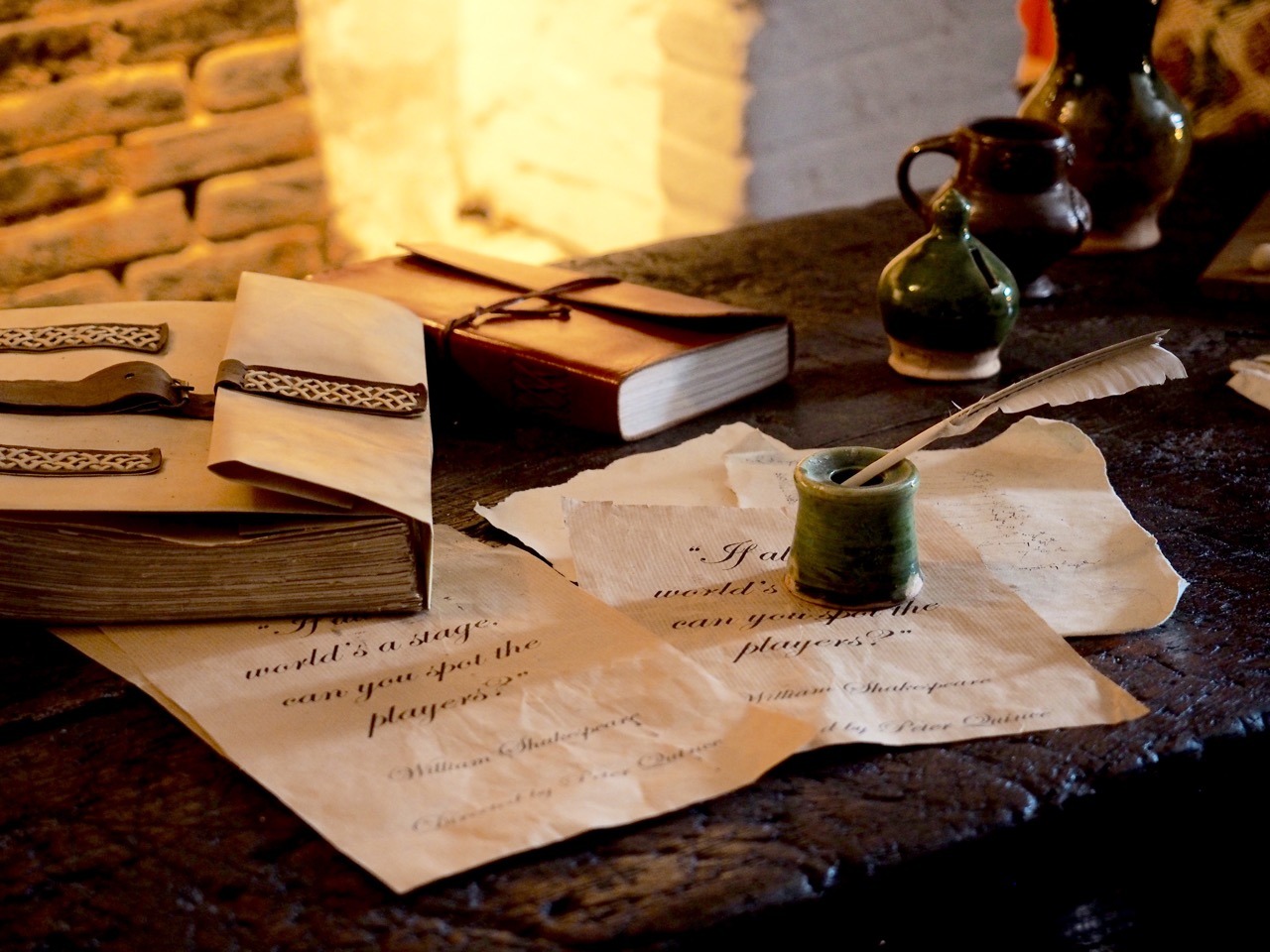
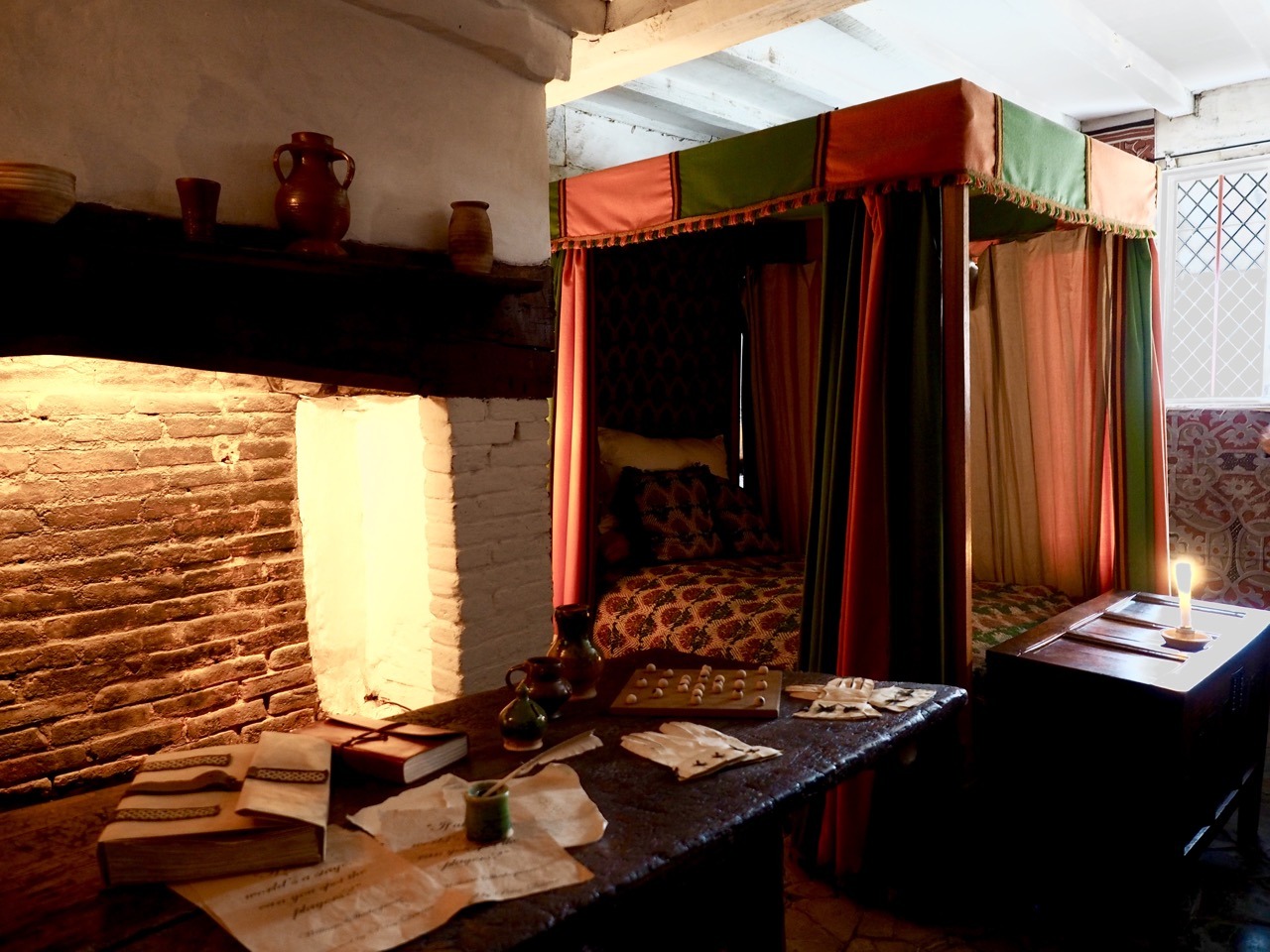
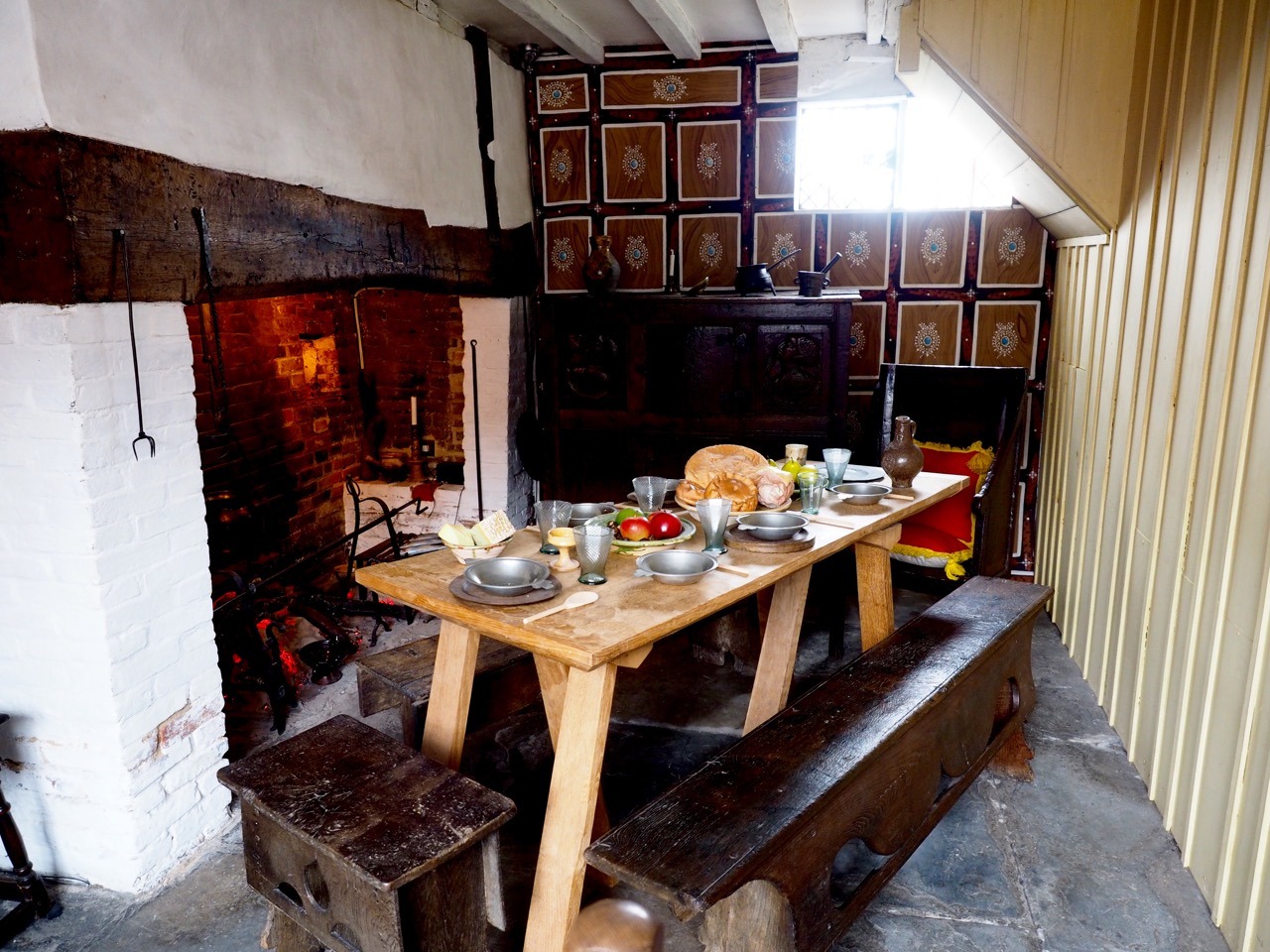
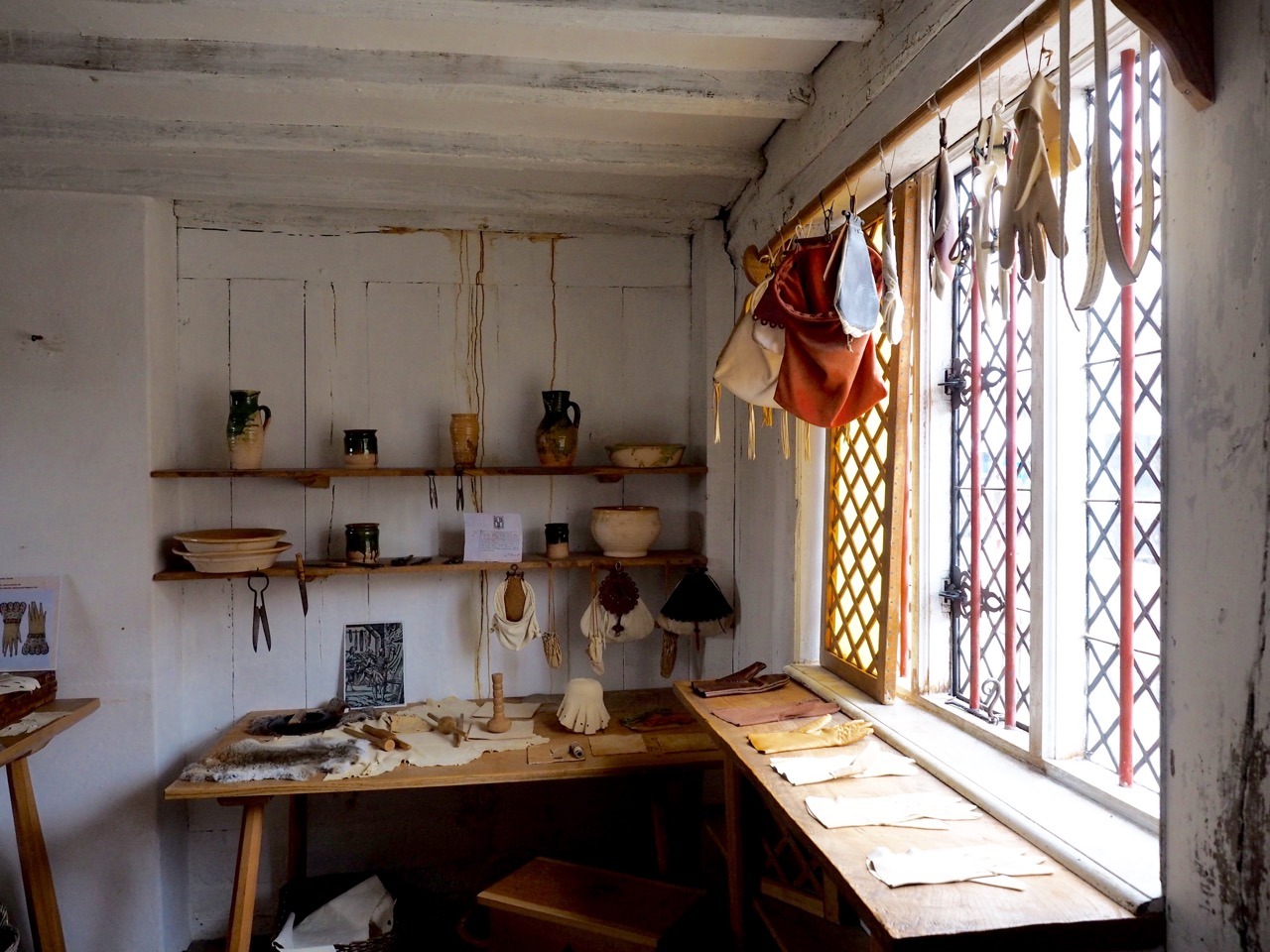
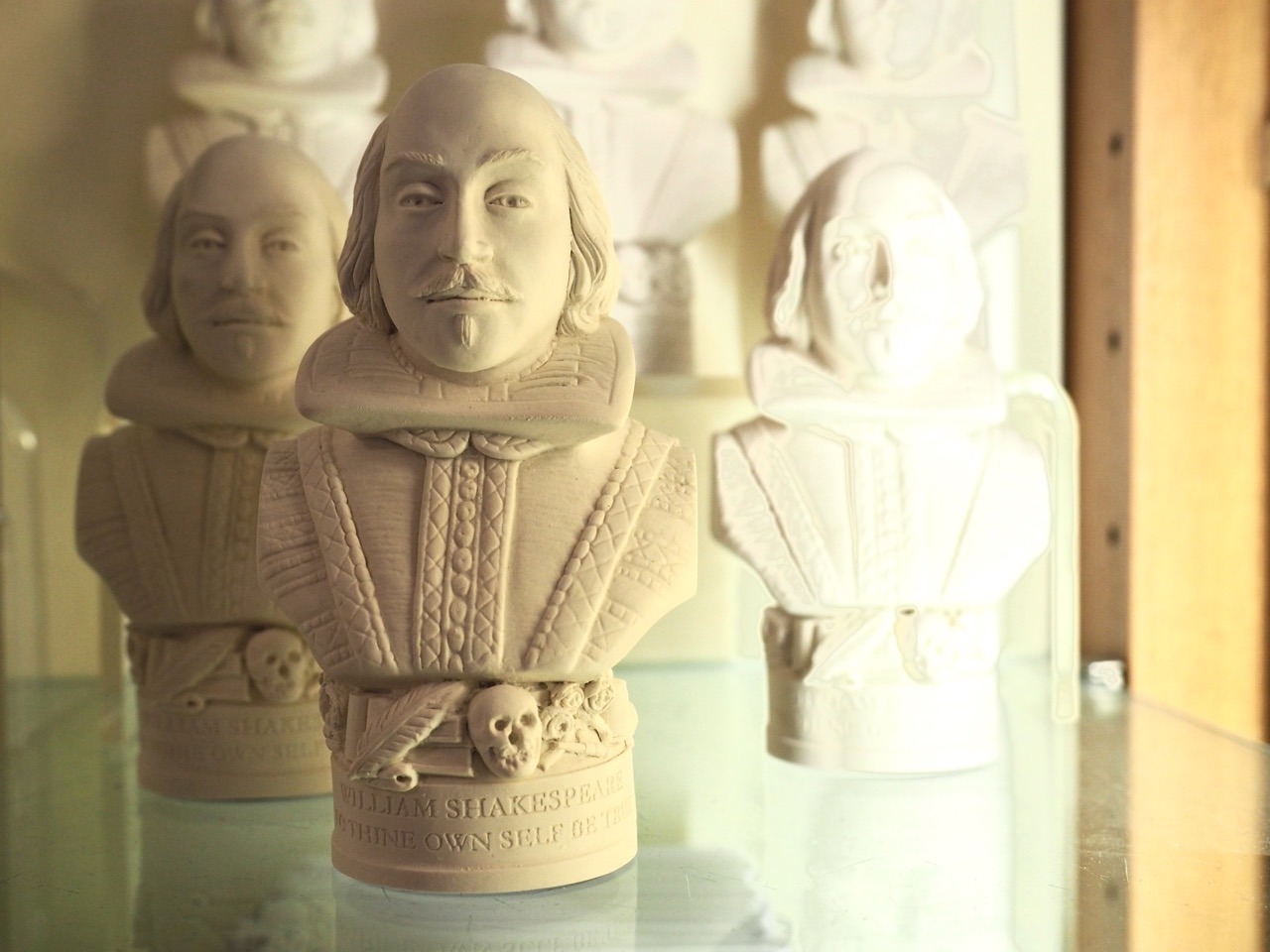
“They do not love that do not show their love. The course of true love never did run smooth. Love is a familiar. Love is a devil. There is no evil angel but Love.” – A Midsummer Night’s Dream
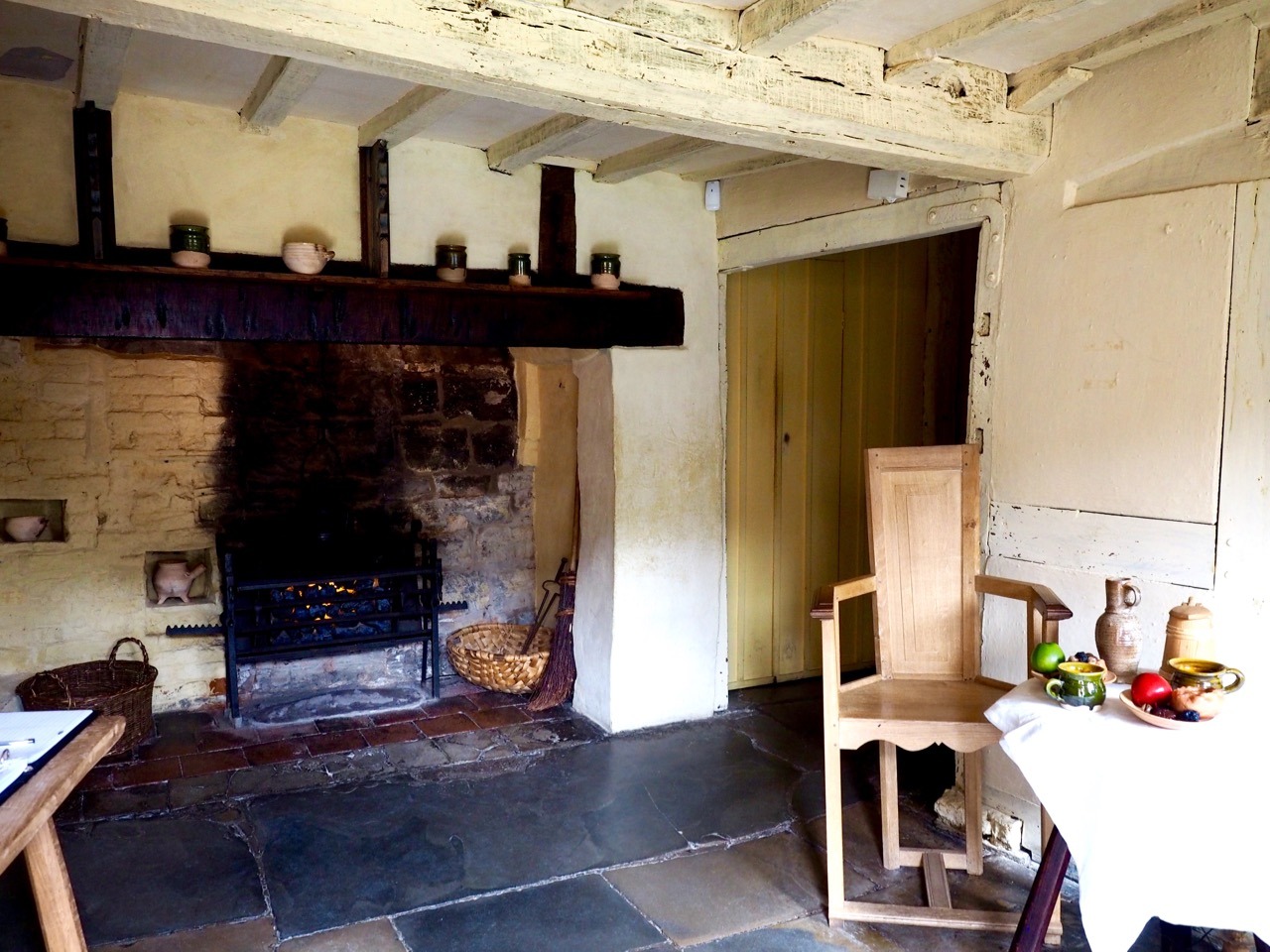
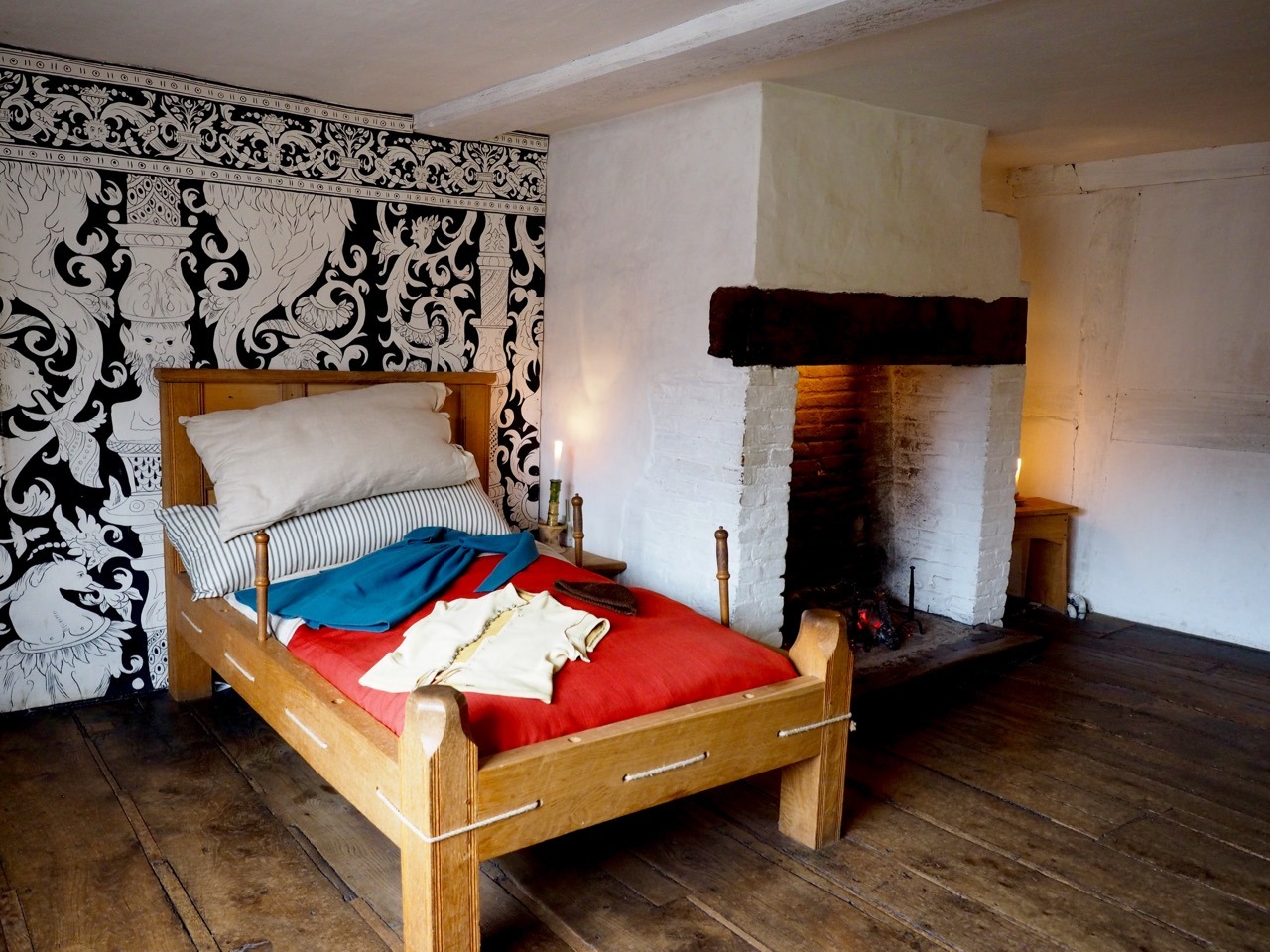
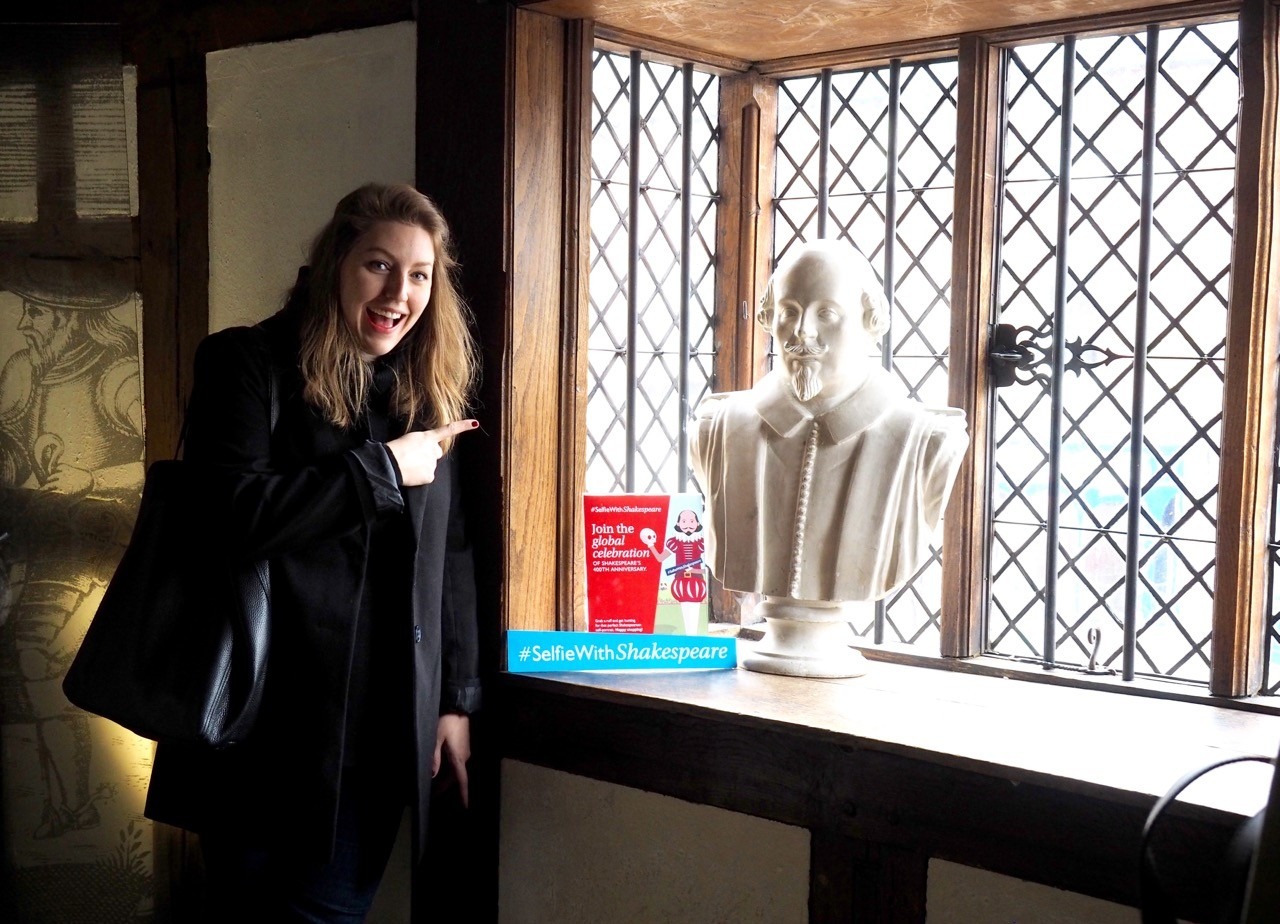
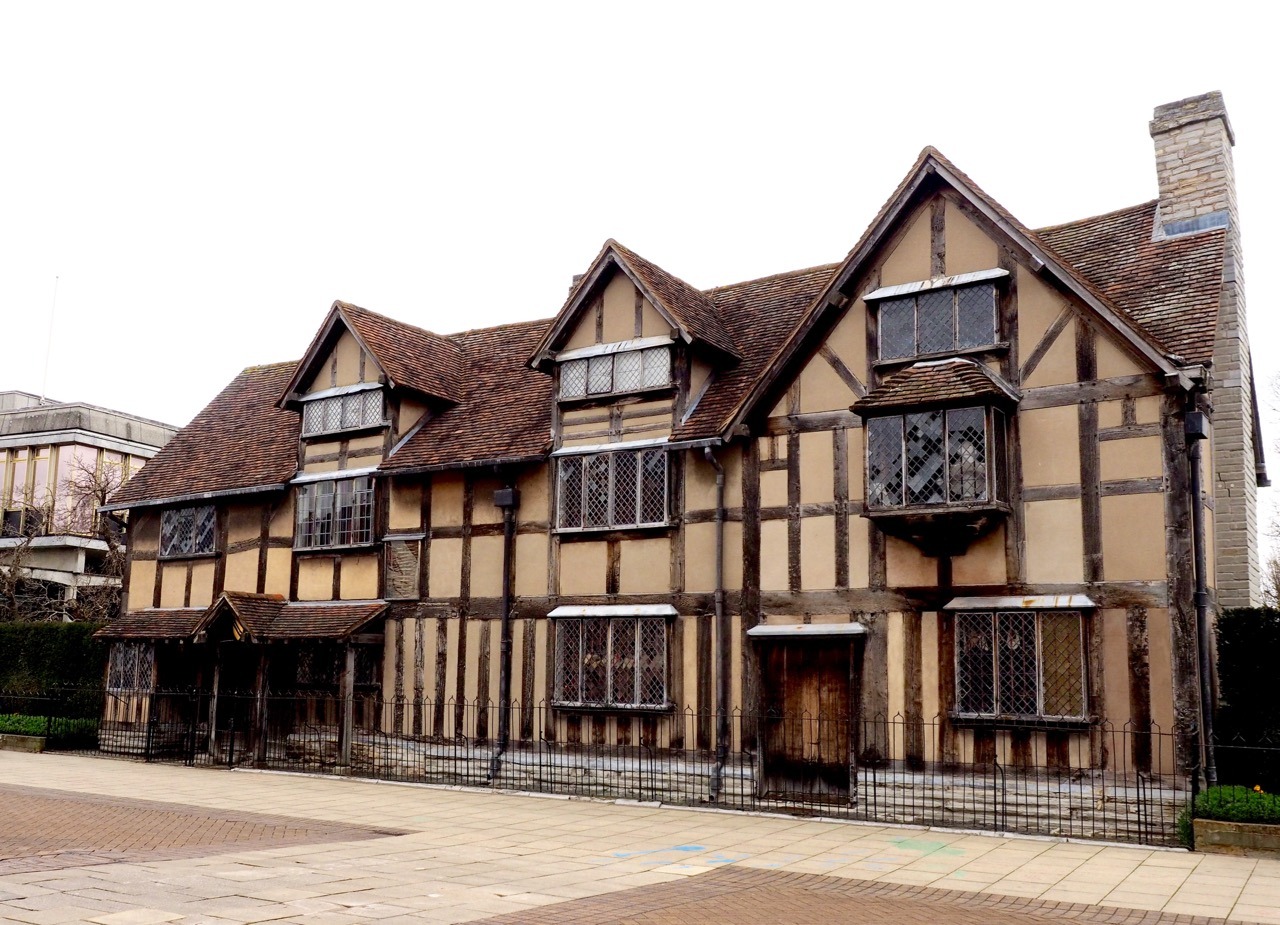
“It is not in the stars to hold our destiny but in ourselves.” – Julius Ceasar
This restored 16th-century half-timbered house is believed to be where Shakespeare was born in 1564 as the son of John Shakespeare, a gifted glover and Mary Arden, the daughter of an affluent landowning farmer. Very little is known about William’s birth and childhood, in reality; even his birth date is still heavily argued, although it is normally celebrated on St. George’s Day, on April 23.
The house, which at the time was Henley Street’s largest and most imposing thus suggesting the substantial wealth of the Shakespeare-Arden household — John Shakespeare would go on to become Stratford’s mayor, the highest elective office; It was precisely because of his father’s high-ranked status that Shakespeare was granted the inestimable privilege of attending grammar school and get an education — comprises various rooms, most notably the bedroom where Shakespeare was born and his father’s workshop, each room holding valuable artefacts from the Bard’s time. But more than just the birthplace, this house is also where he spent the first five years of his marriage living here with his wife Anne Hathaway. As the eldest surviving child, the playwright inherited the house after his father’s passing in 1601 and leased the property named the Swan and Maidenhead Inn, which remained operational until 1847. The house was passed down to Susanna, Shakespeare’s only child, and then to his granddaughter Elizabeth until she too passed away; childless, the house fell to one of Shakespeare’s sisters until it was bought by the Shakespeare Birthplace Trust in 1847.
In addition to providing substantial knowledge on the life of mythical Shakespeare, the guided tours led by local volunteers allow visitors to come out rather well versed in the odd traditions of the 17th century — for instance, did you know that people slept sitting up because they worried the devil would think they were dead if they lay completely flat?
“This above all: to thine ownself be true. And it must follow, as the night the day, thou canst not then be false to any man.” – Hamlet
Stratford-upon-Avon and Shakespeare in England: Know Before You Go
- Stratford-upon-Avon is the most significant location for Shakespeare in England and just under two hours of London by train from Marylebone Station. Tickets cost around 20 pounds. If you’d rather go with a group, most tour operators offer day trips to the city (which generally include stops in Oxford and the Cotswolds).
- The Shakespeare Birthplace is a must, as are the archive collections. To visit the latter, you will need to book an escorted and commented visit in advance. It is well worth the price, considering you’ll come across his sought-after, multi-million-pounds-worth First Folio as well as unique direct documentary evidence of his life in Stratfort.
- The Royal Shakespeare Company offers fascinating behind the scene tours before the matinee shows. If you prefer to see a play, they have a rather busy schedule!
[wpgmza id=”197″]

